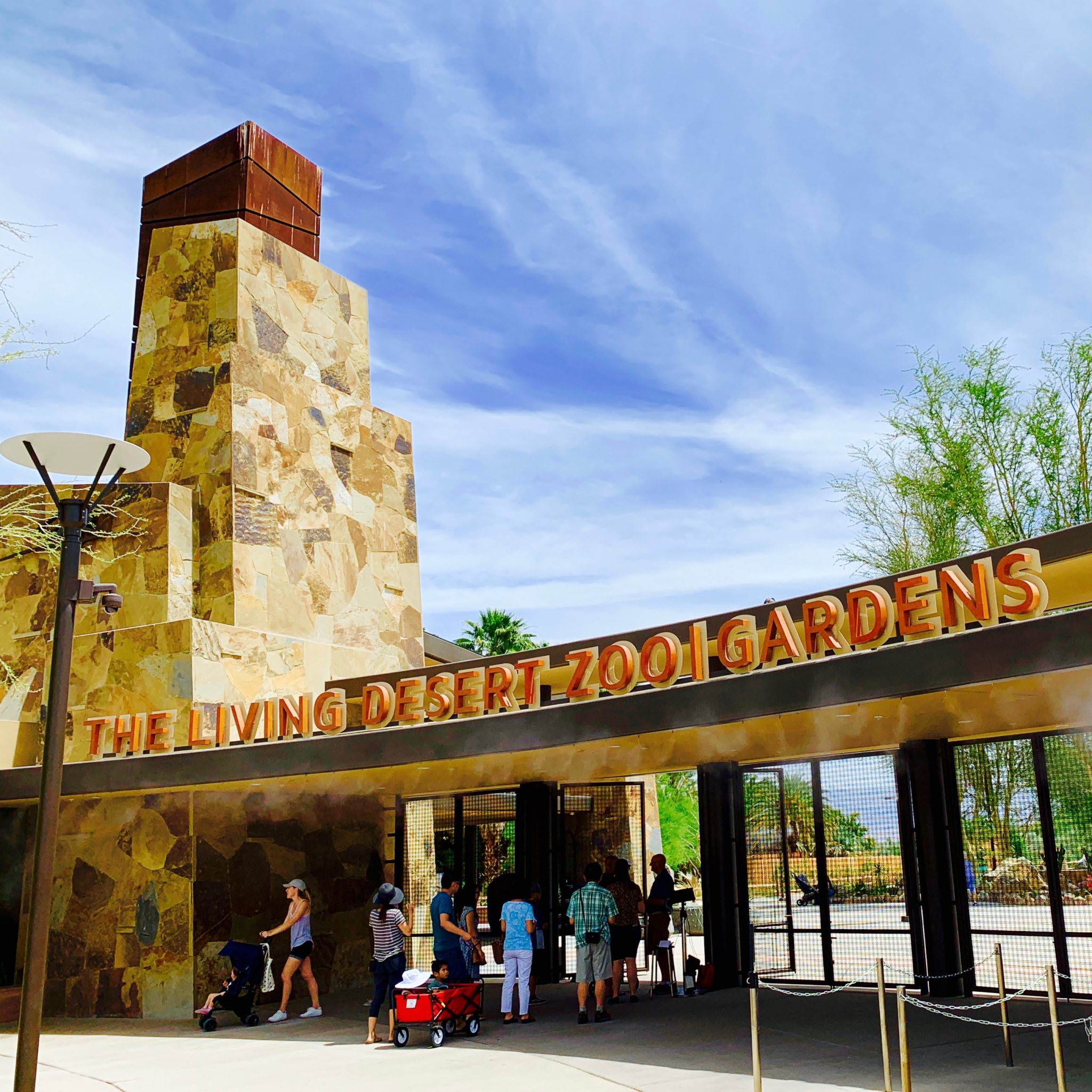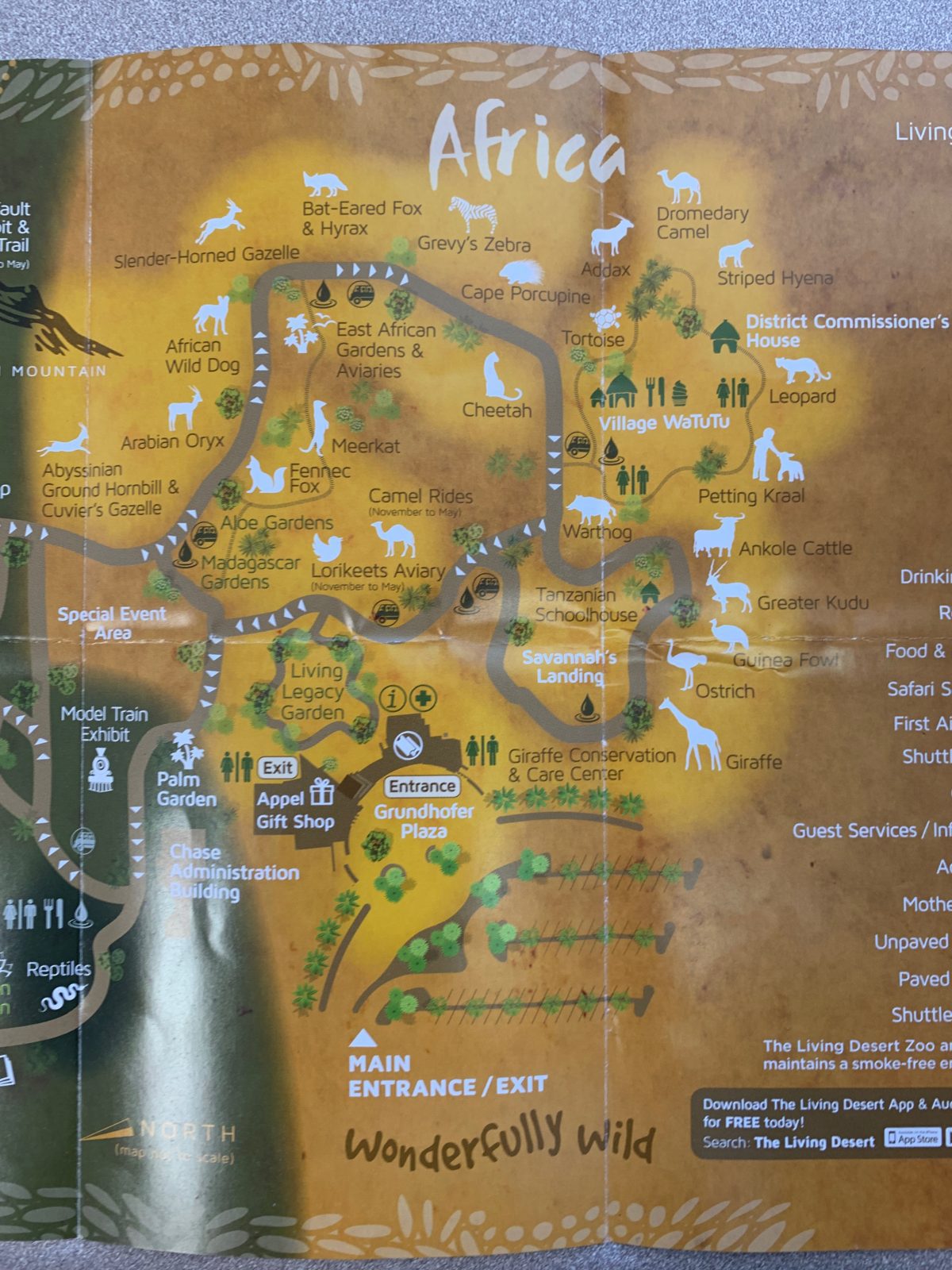When last I visited The Living Desert Zoo|Gardens (sometime in the late 80’s), it was actually called “The Living Desert Museum“.
Then, as now, I had a keen interest in herpetology (the study of reptiles and amphibians), and in my memory, the Living Desert Museum had an amazing collection of desert reptiles.
So I wondered, would the Living Desert Zoo|Gardens be as great as I remembered?
Visiting The Living Desert Zoo|Gardens (Palm Springs, CA)
Editor’s Note: This article is part of my ongoing series on the state of California and its sister-series on Palm Springs
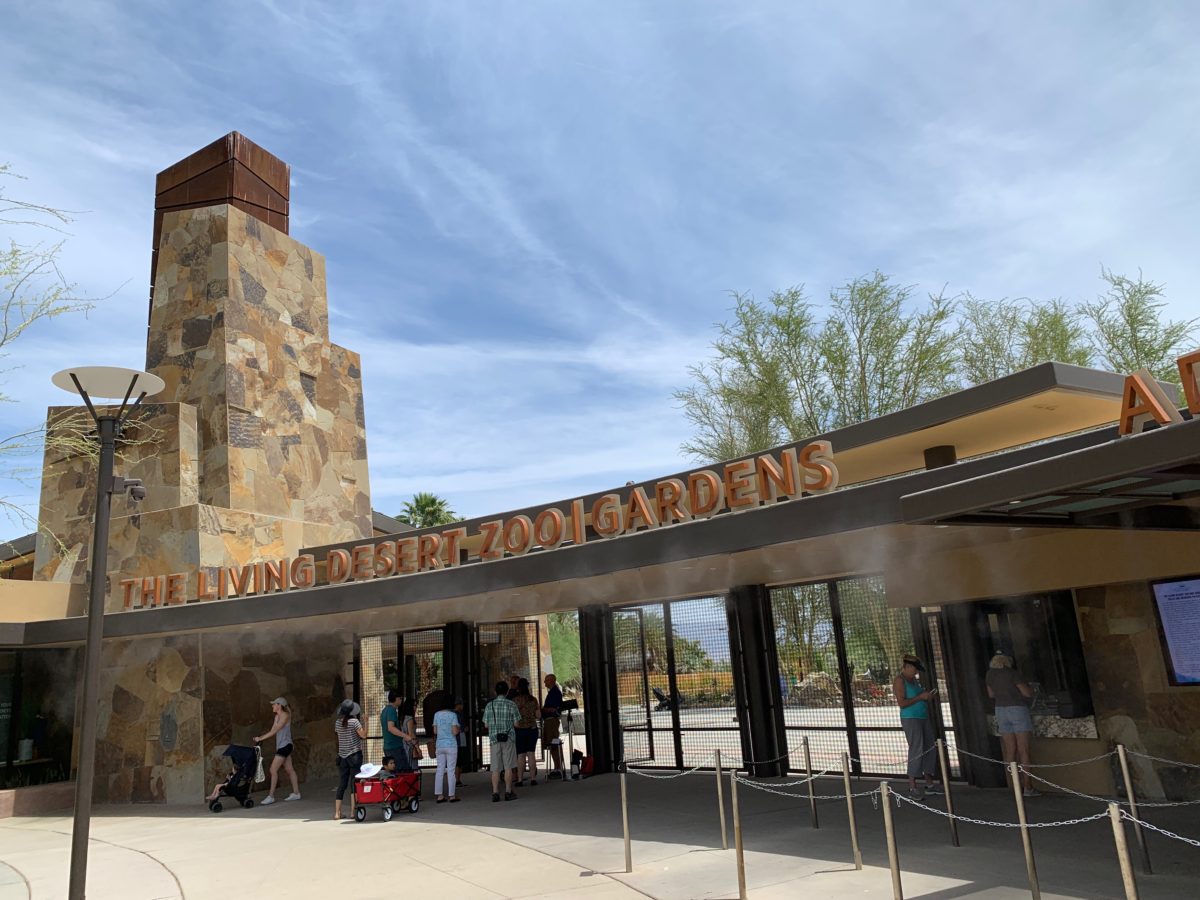
About The Living Desert Zoo|Gardens
Here is the information from the Official Website: livingdesert.org.
Parking is free.
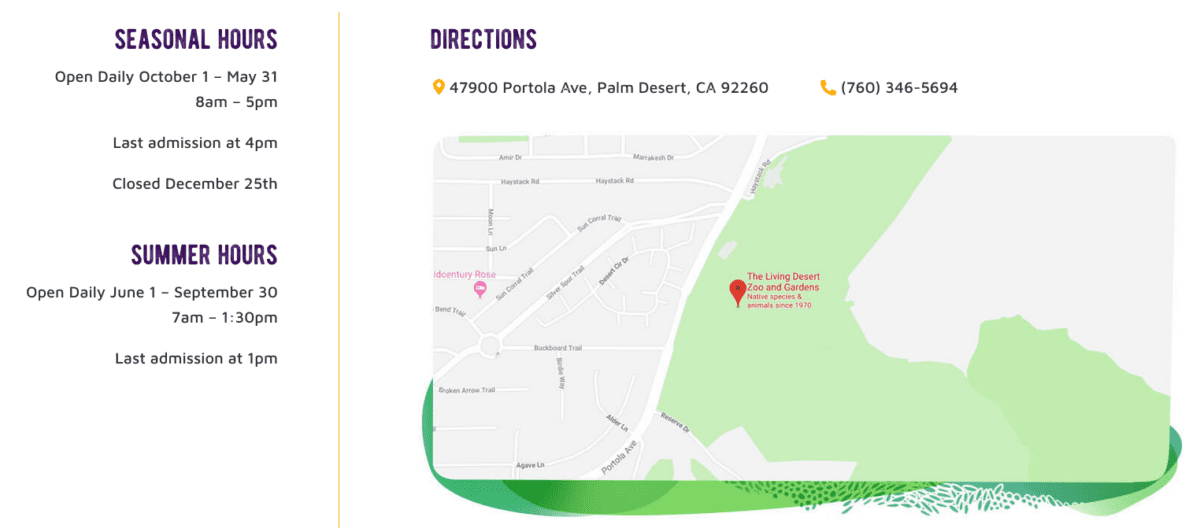
Image: livingdesert.org
Map Of The Living Desert Zoo|Gardens
The park is divided into 2 main sections, “North America” and “Africa” – with a smaller third section, “Australia”, just added (near the entrance).
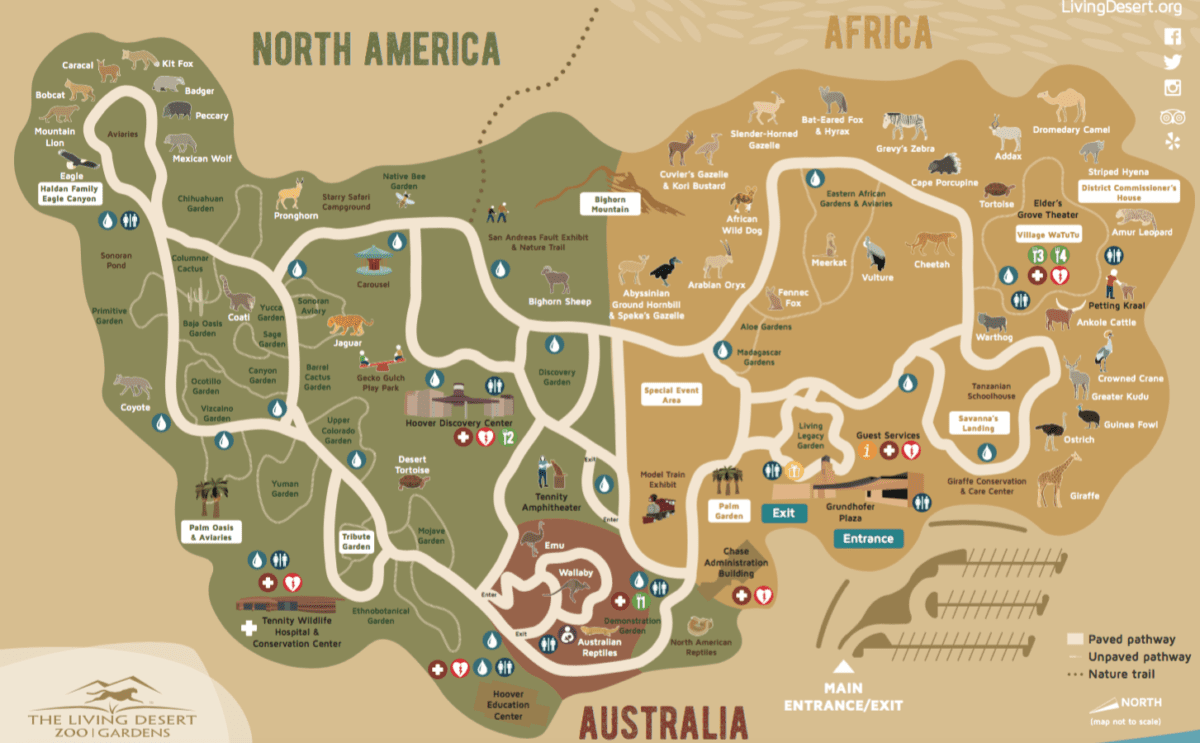
Image: livingdesert.org
The Model Train Exhibit
The first stop “out the gate”, was the Model Train Exhibit.
Now, let me first state, I’m not a “model train guy” by any means.
With that said, I was very impressed with the park’s Model Train Exhibit. It was totally worth a stop.
It was very large and incredibly detailed. Every adult I saw walk by had a huge smile on their face, not to mention the kids.
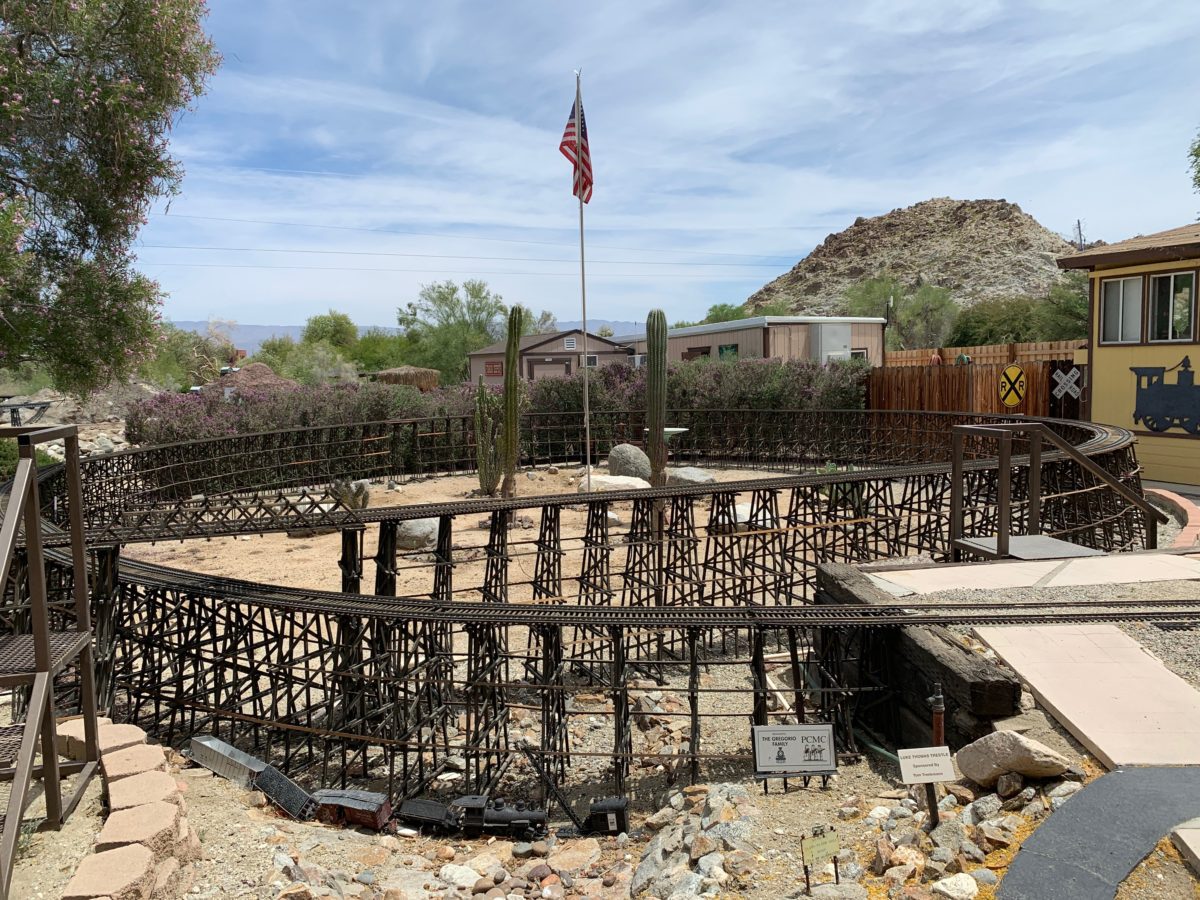
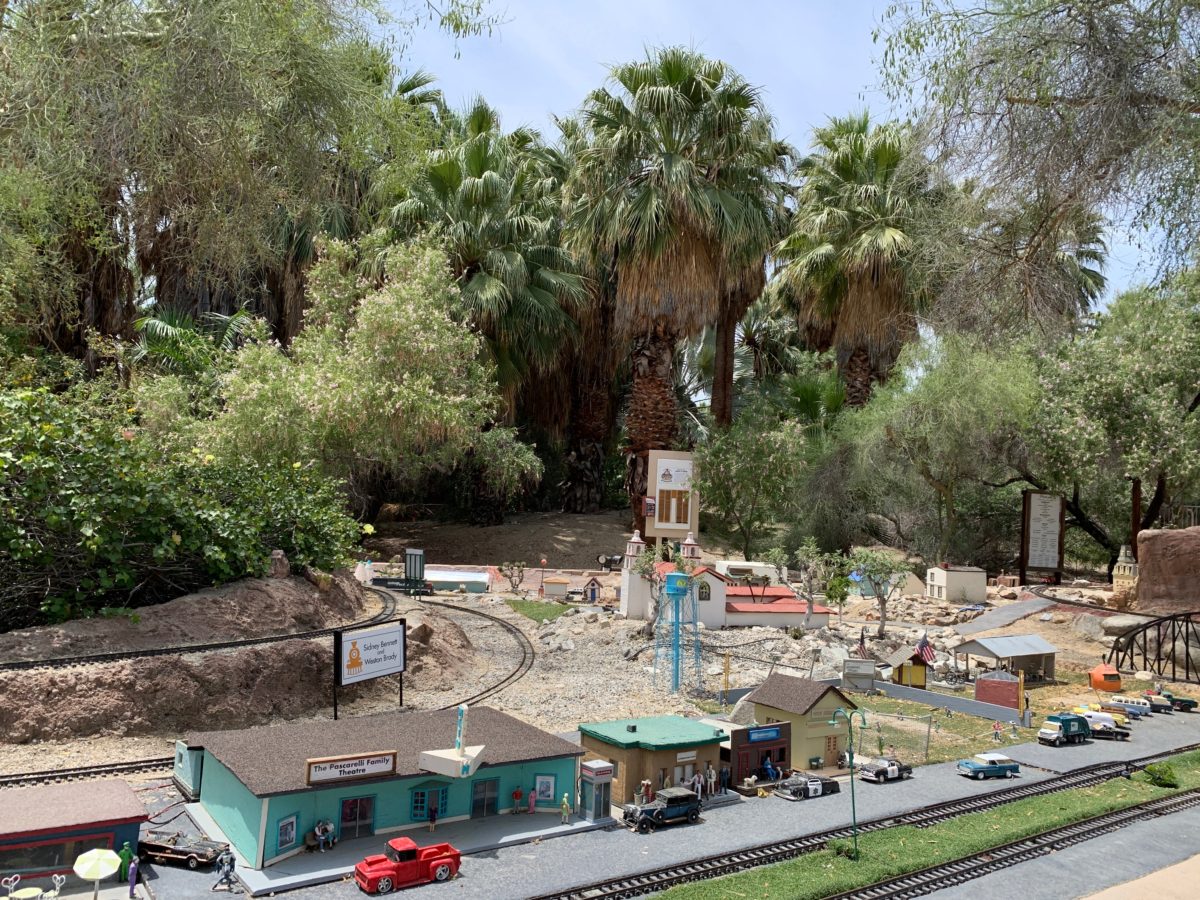
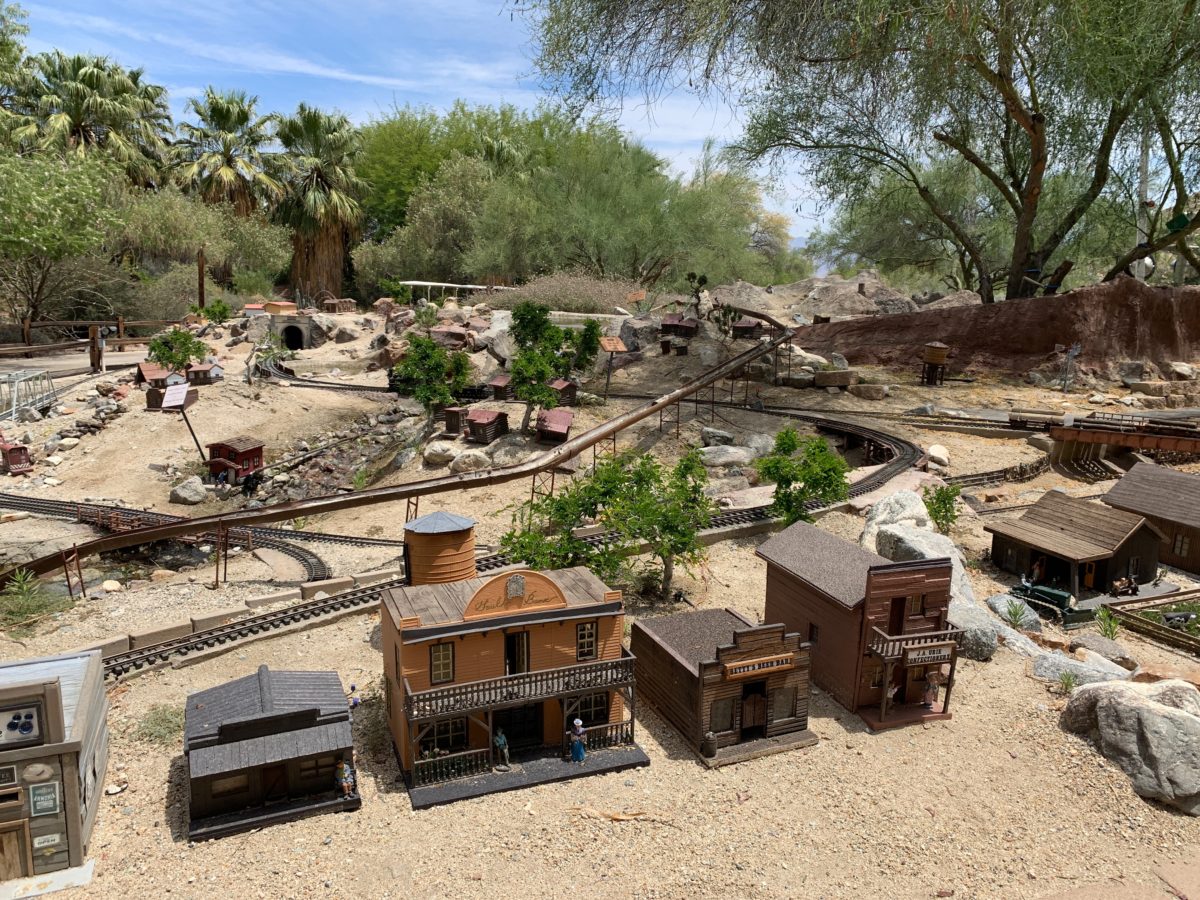
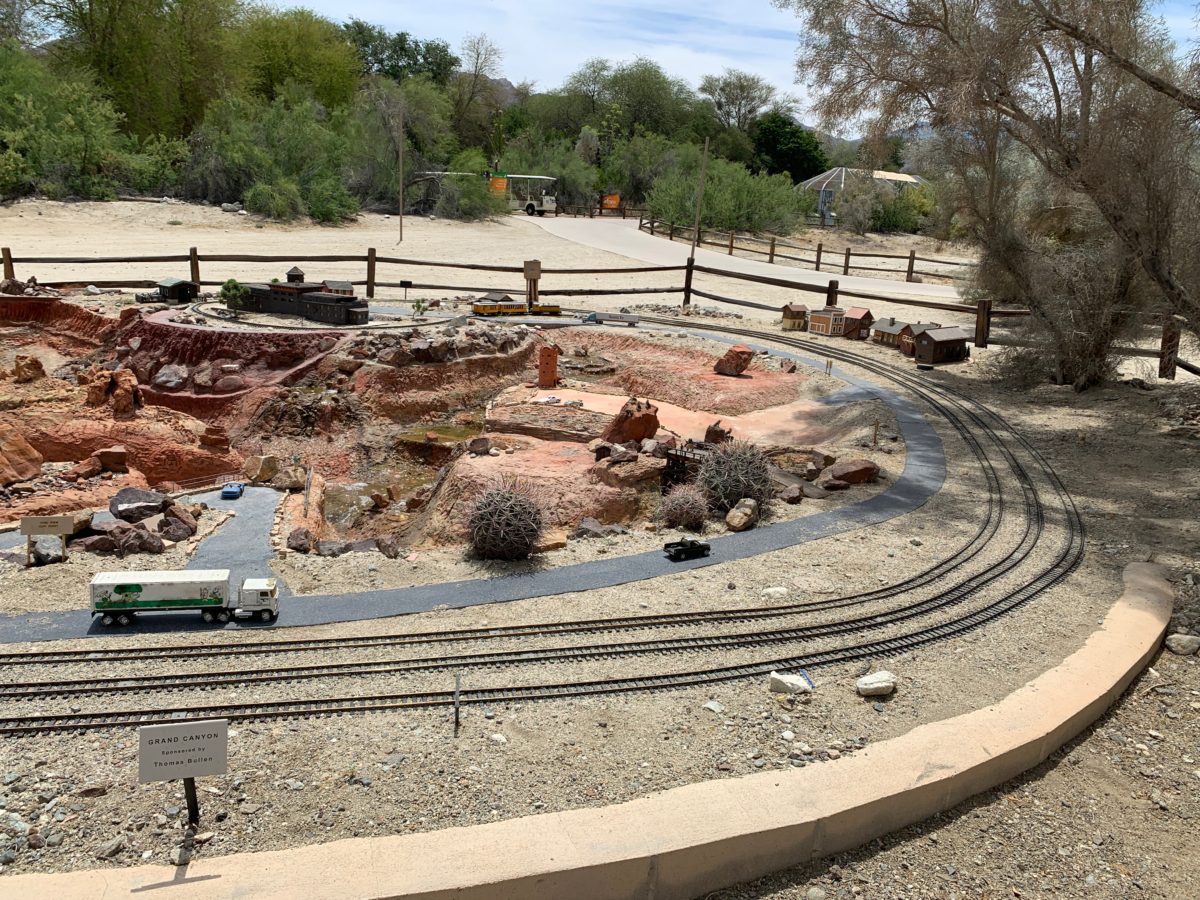
Welcome To North America
After a brief walkthrough of the still under construction “Australia” exhibit, we found ourselves wandering through the varied deserts of North America.
We made our way through the Mojave, the Tribute Garden, the Upper Colorado, and the Yuman before winding up at the Palm Oasis and Aviaries.
From the Oasis, we ventured into the Primitive Garden and over to the upper loop to see all its resident mammals, before heading over to see the Jaguar in the Sonoran Desert.
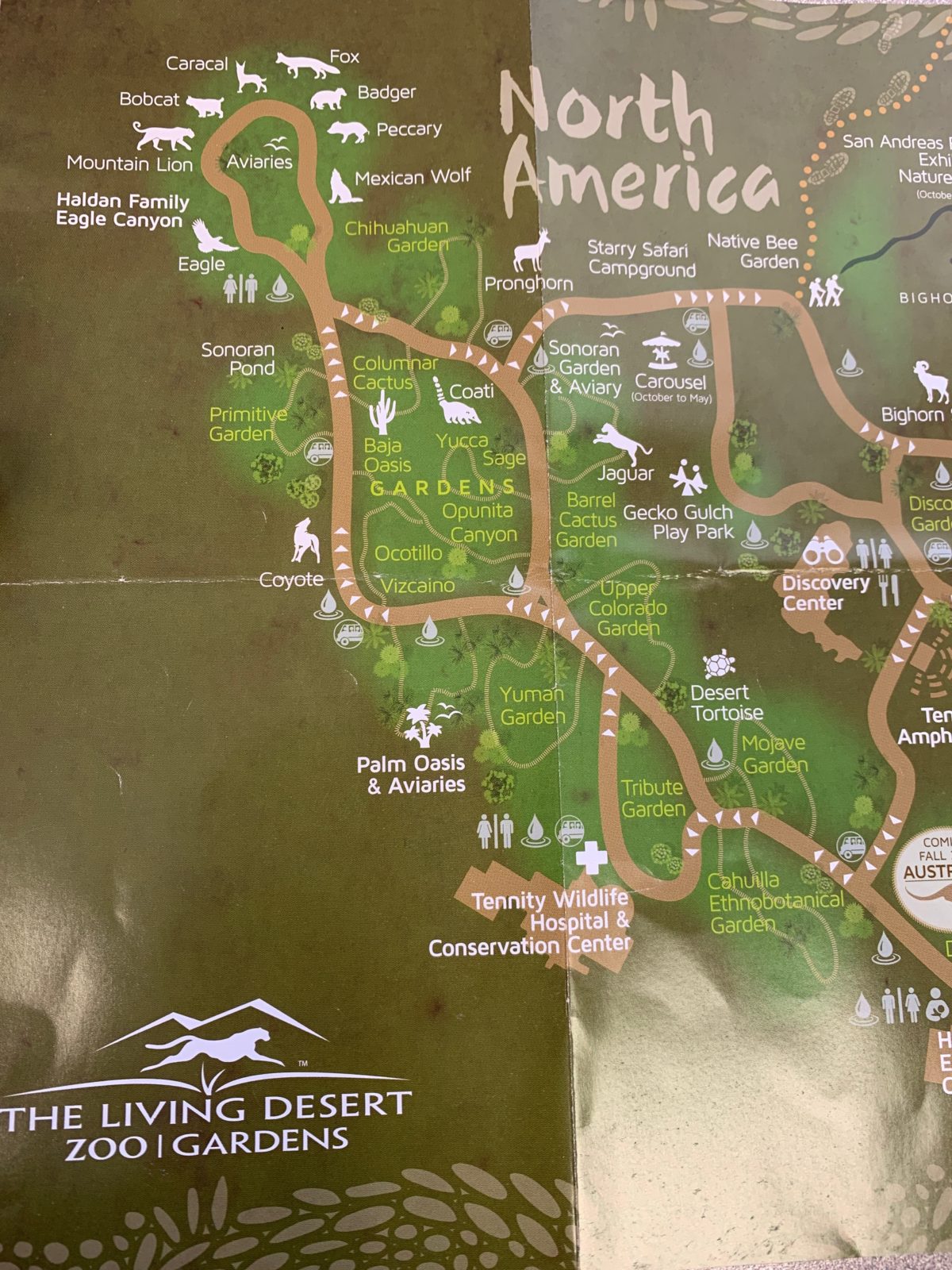
Walking The Desert Botanical Gardens Of North America
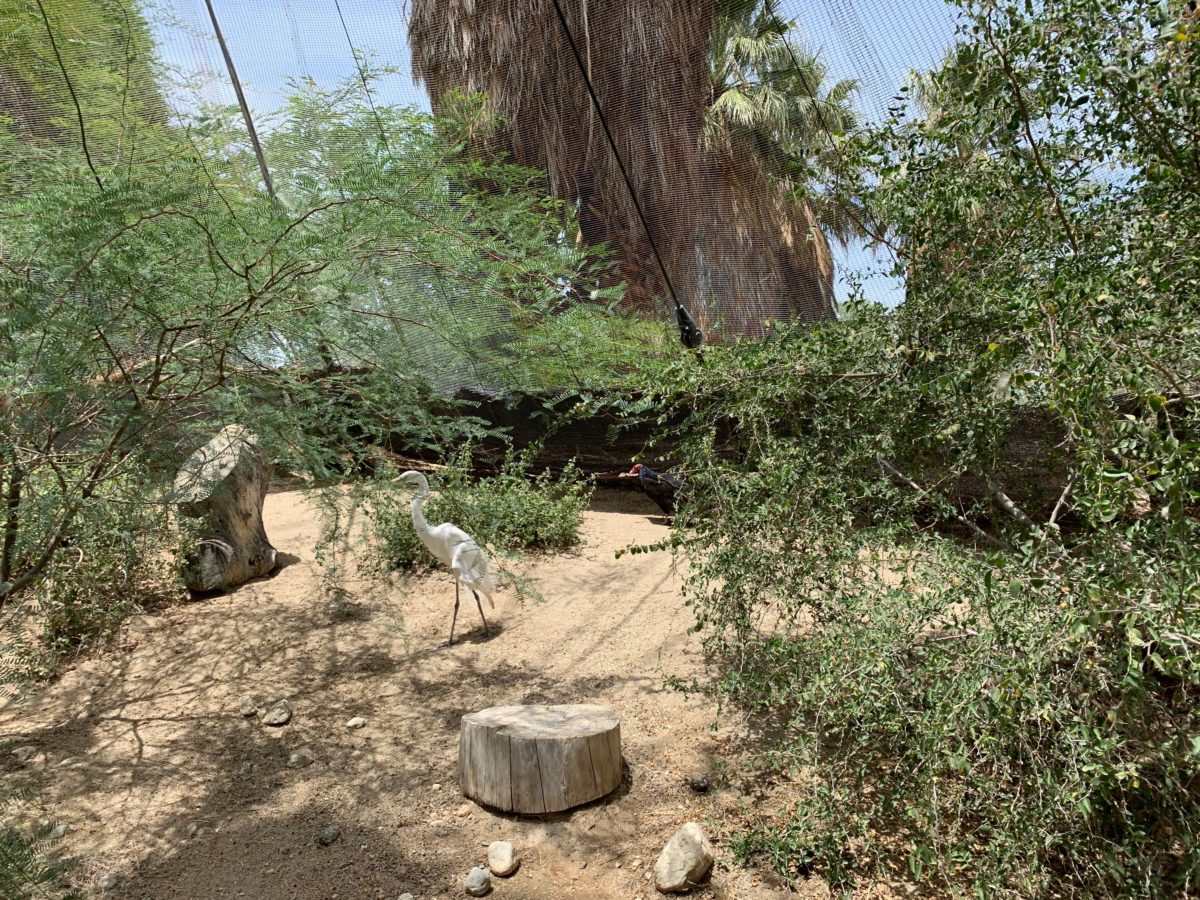
An aviary
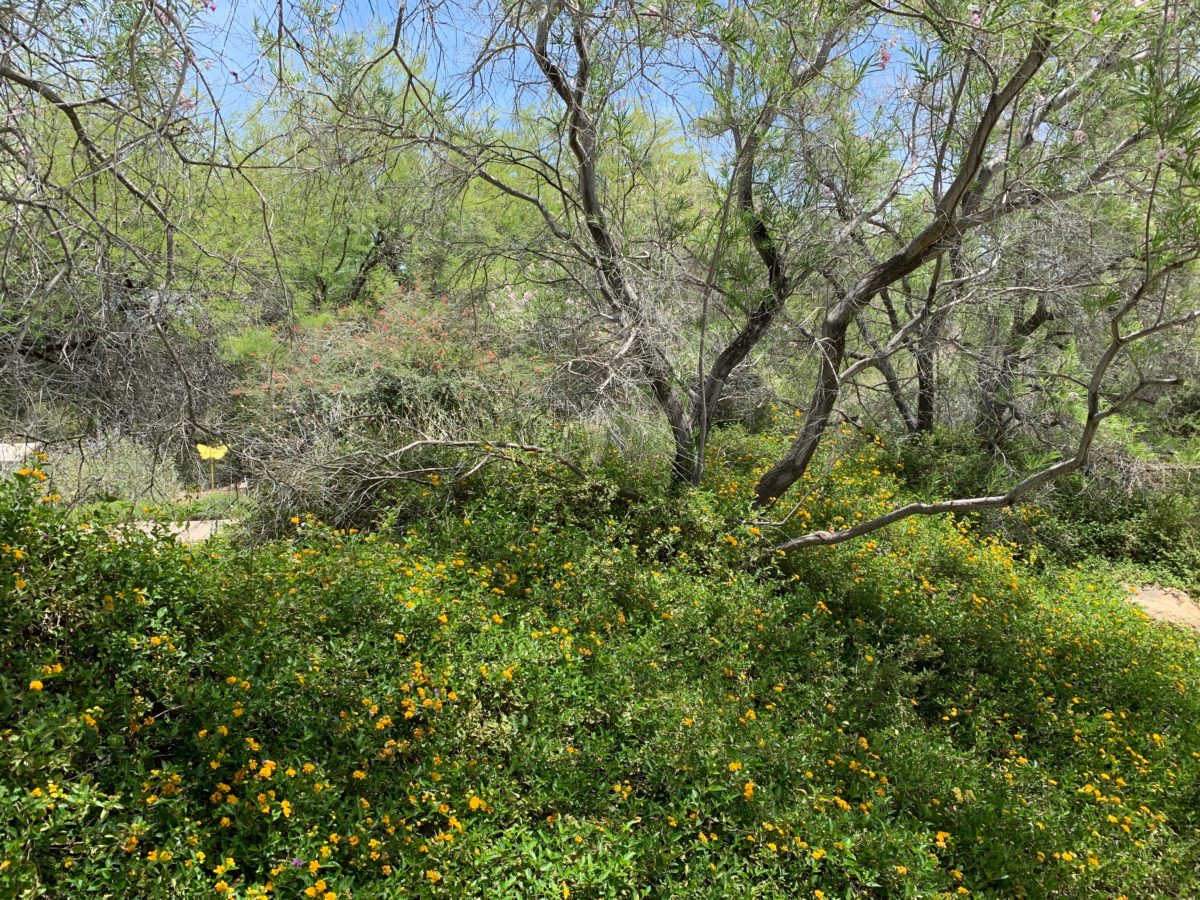
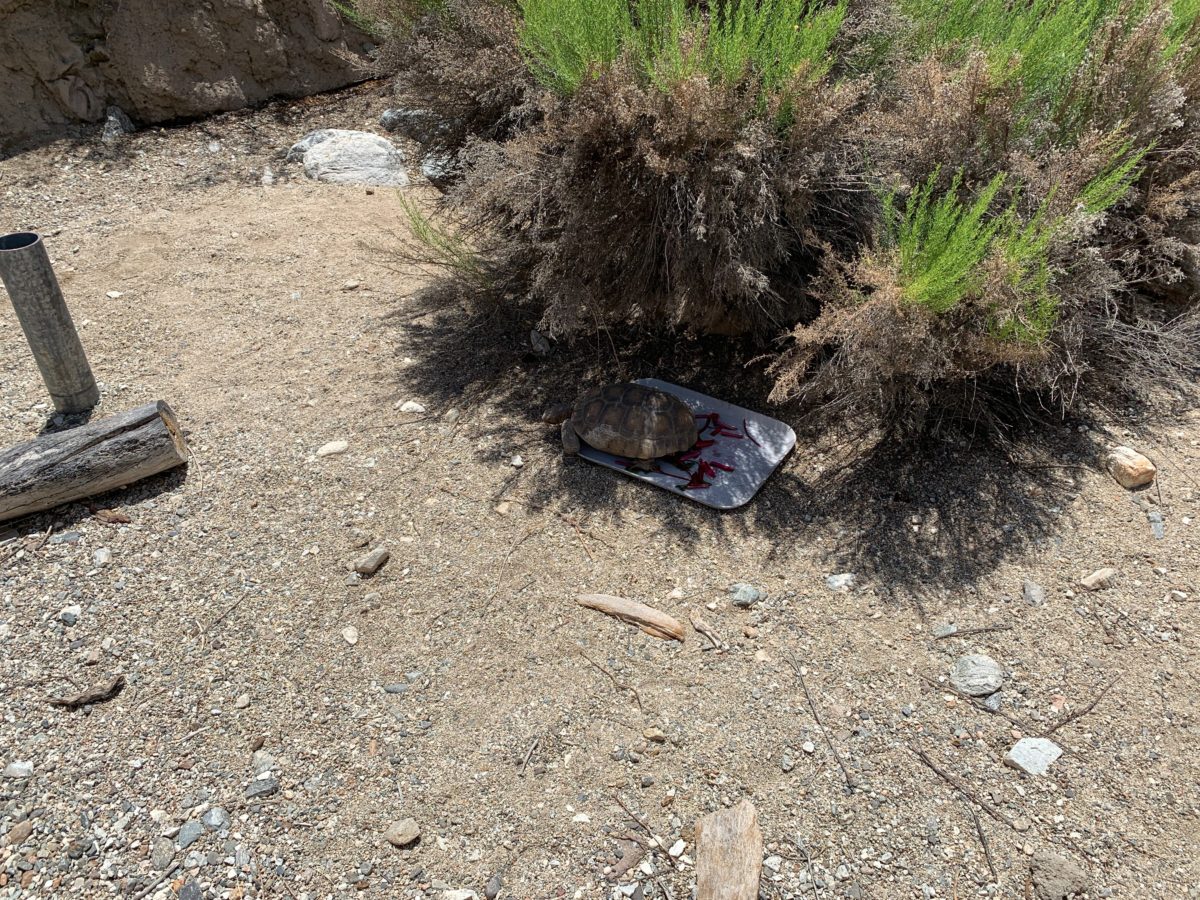
Desert Tortoise
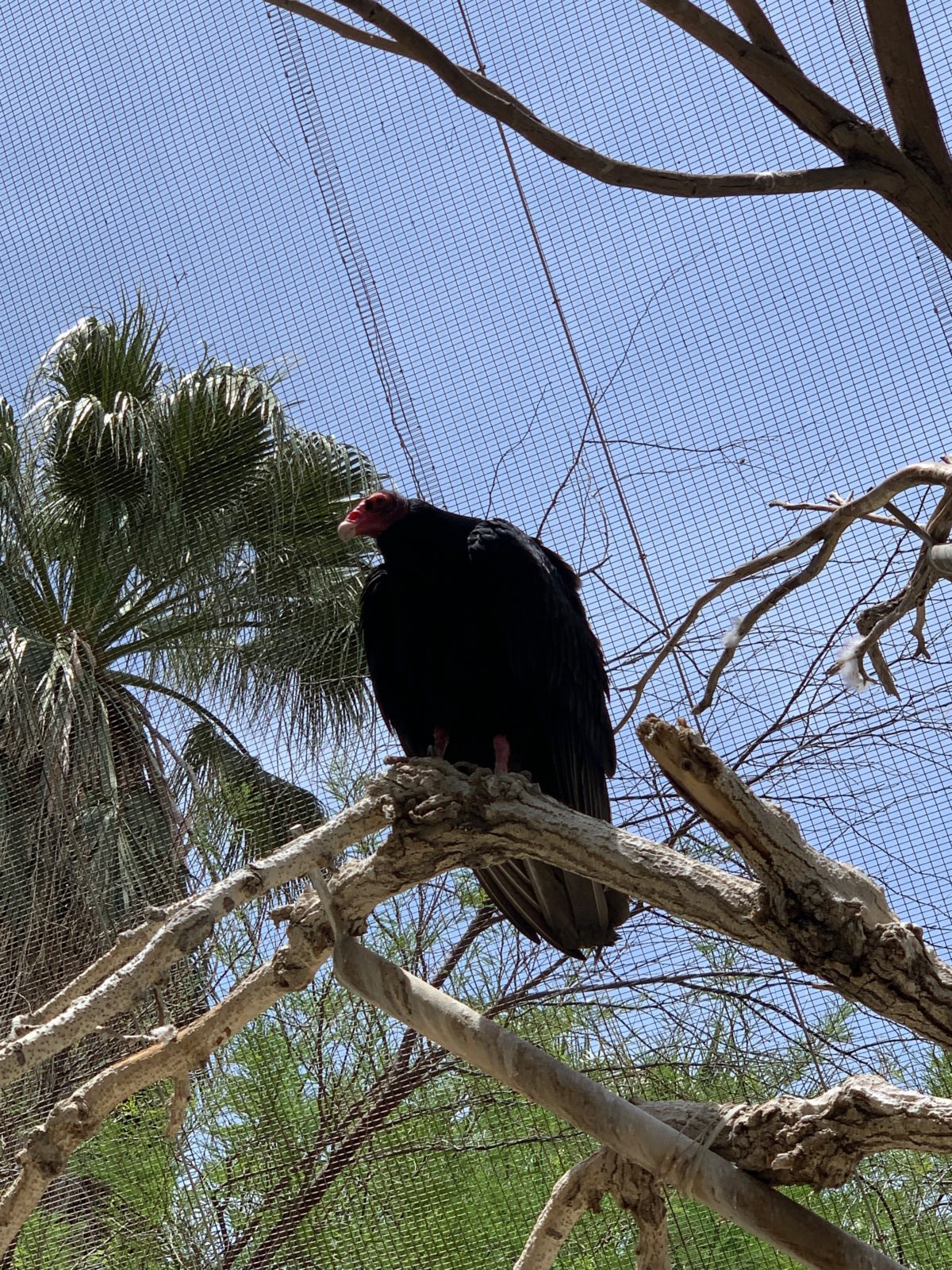
Turkey Vulture
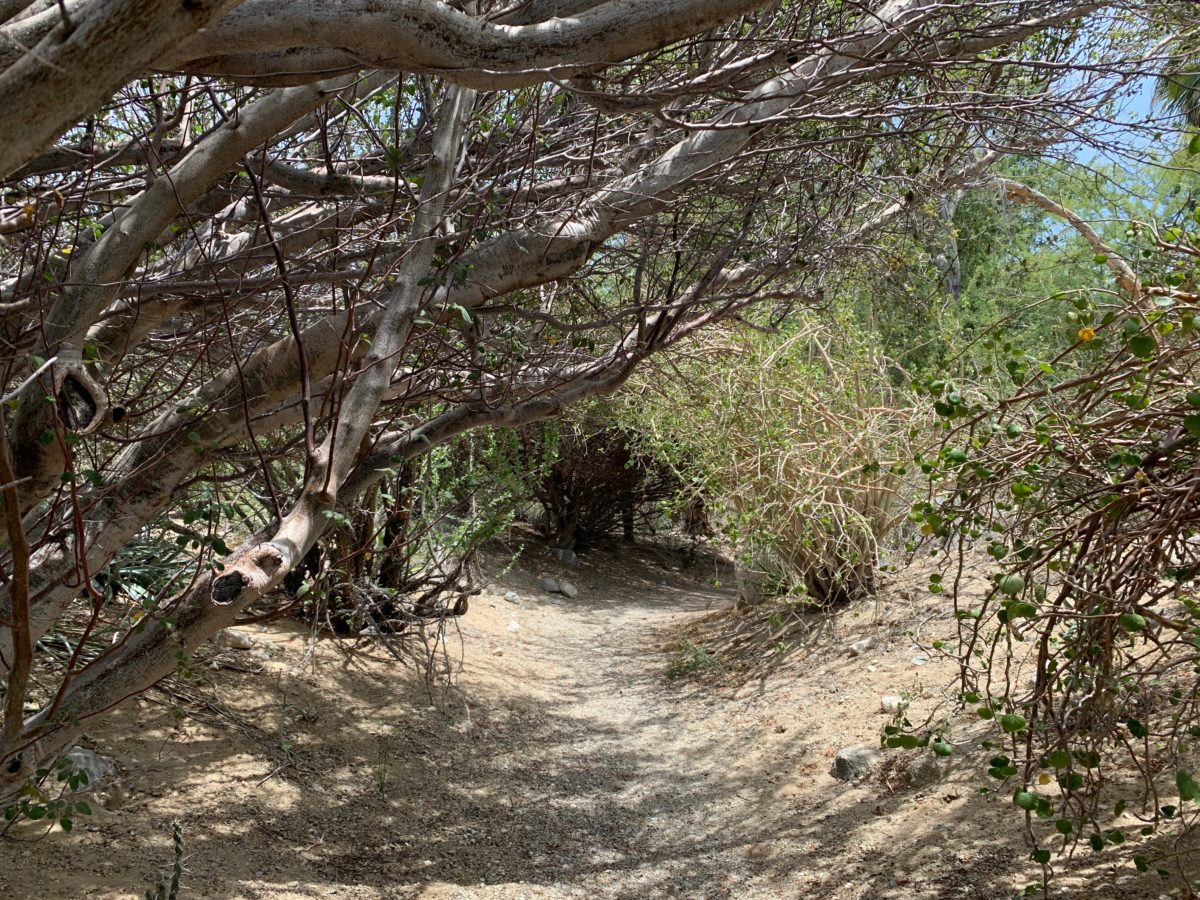
The Palm Oasis
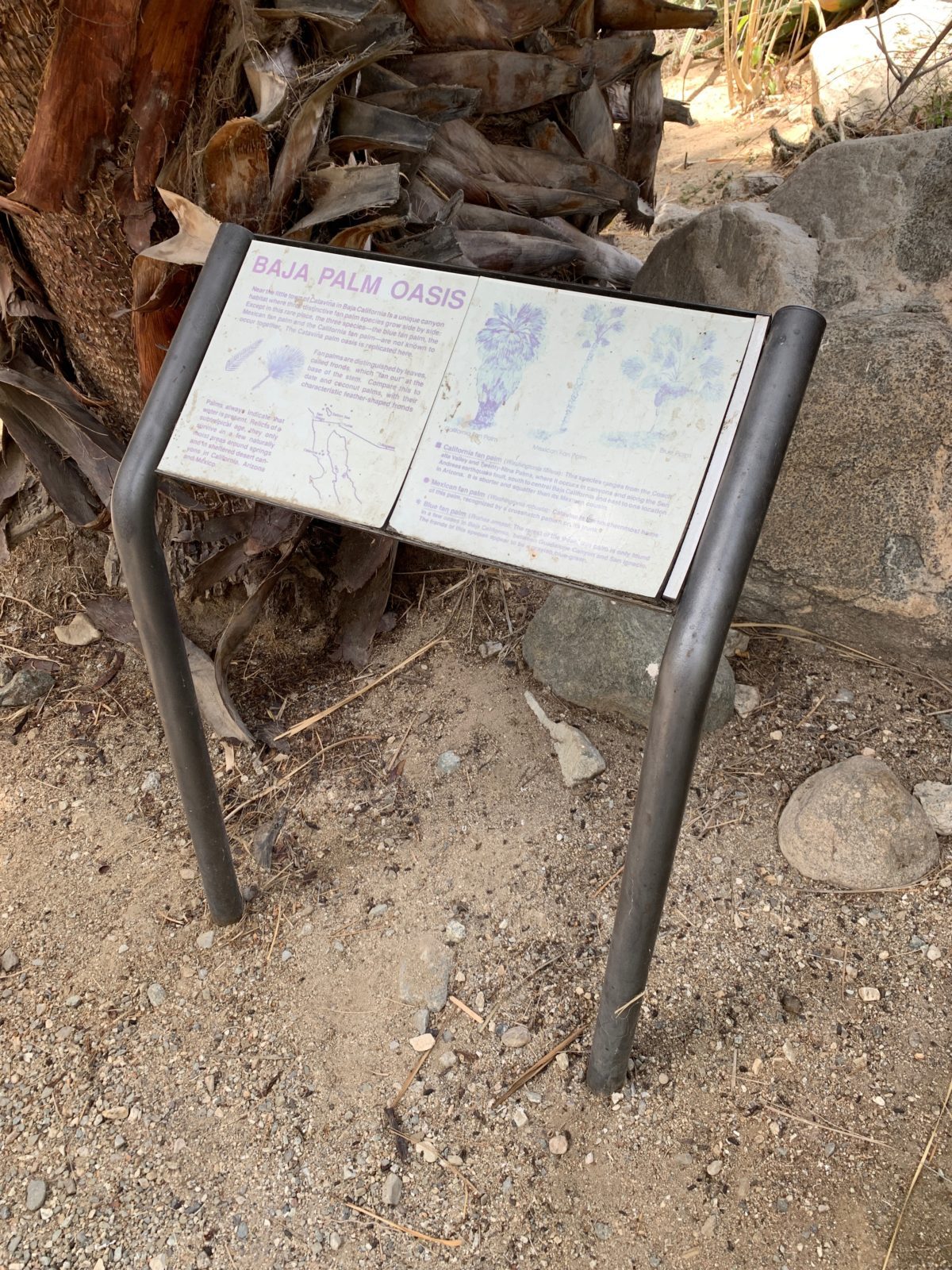
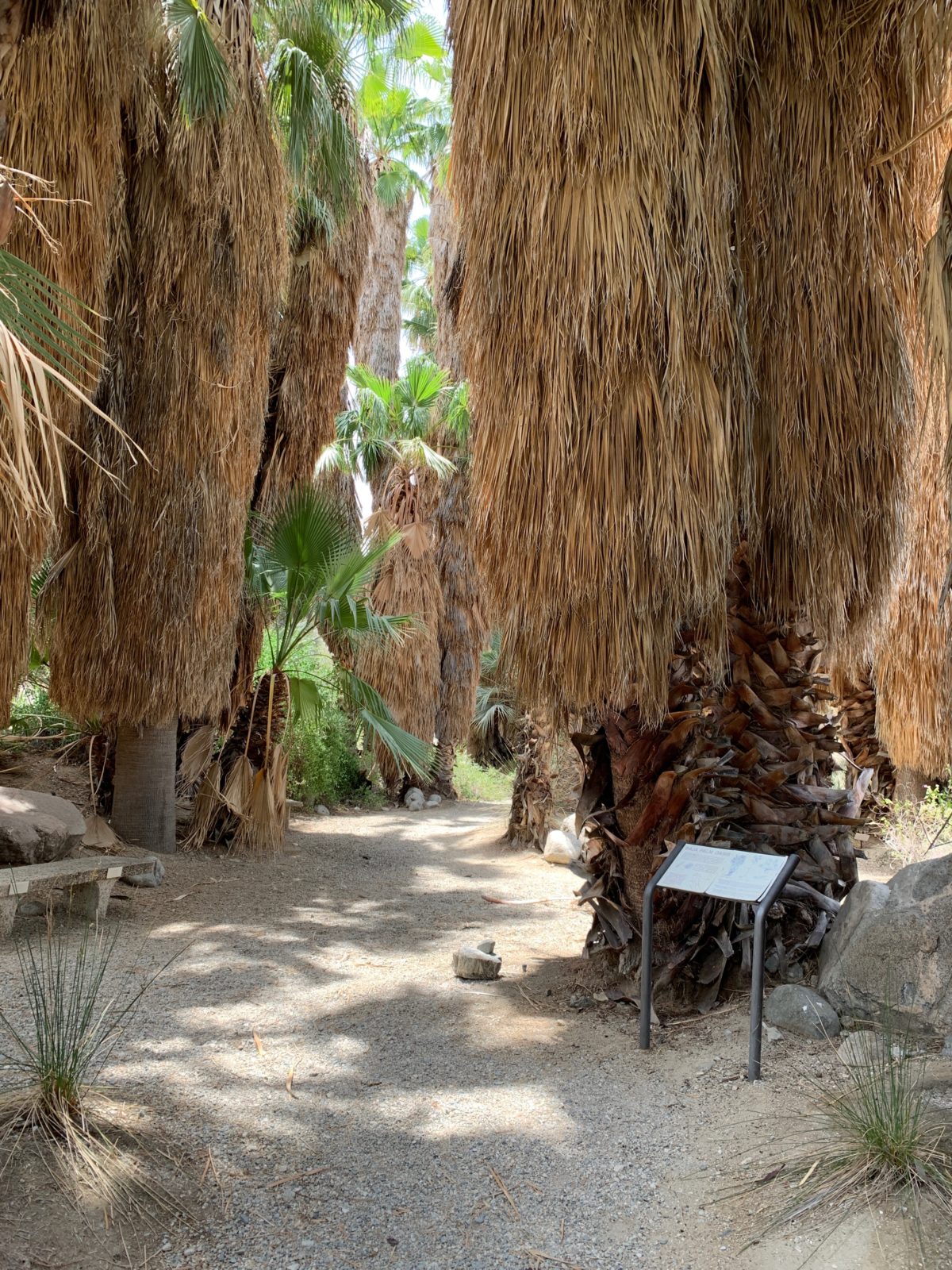
The Primitive Garden
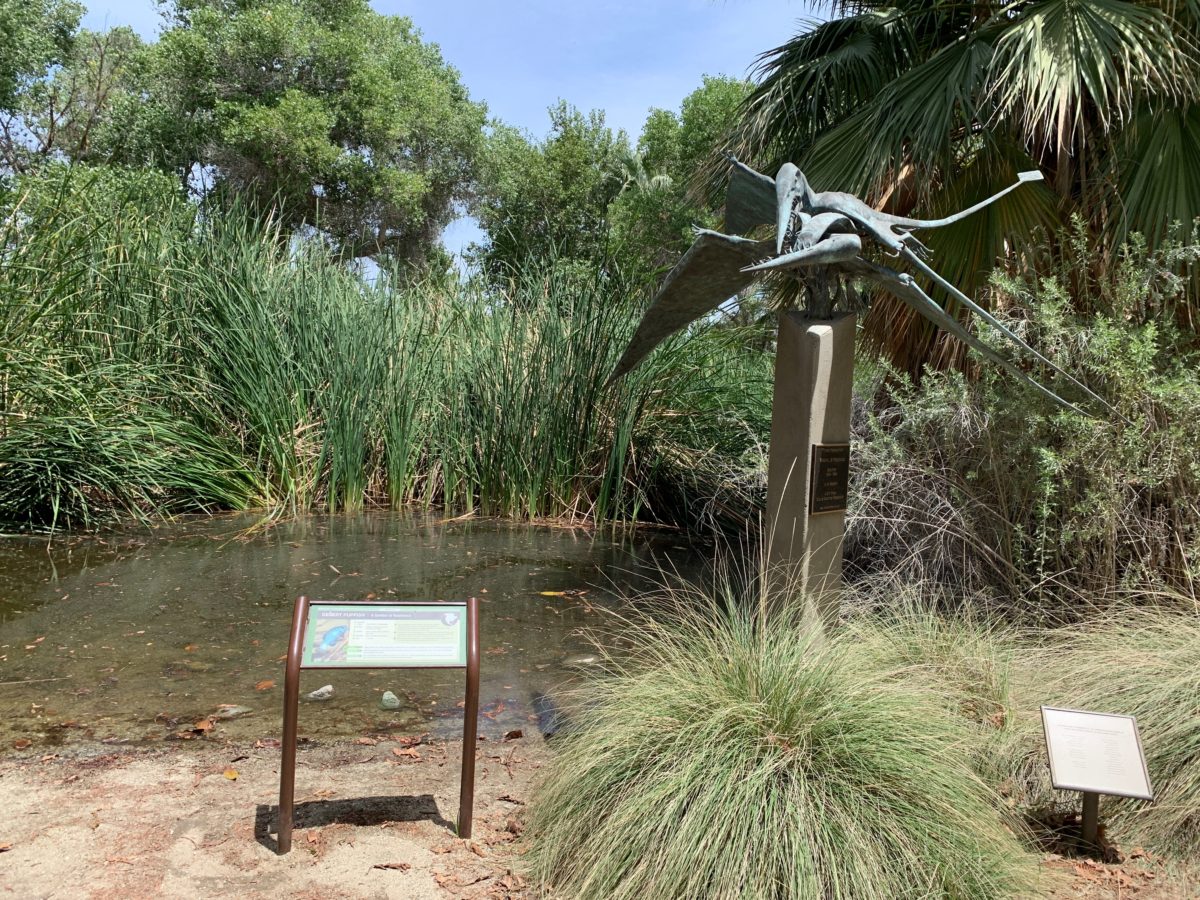
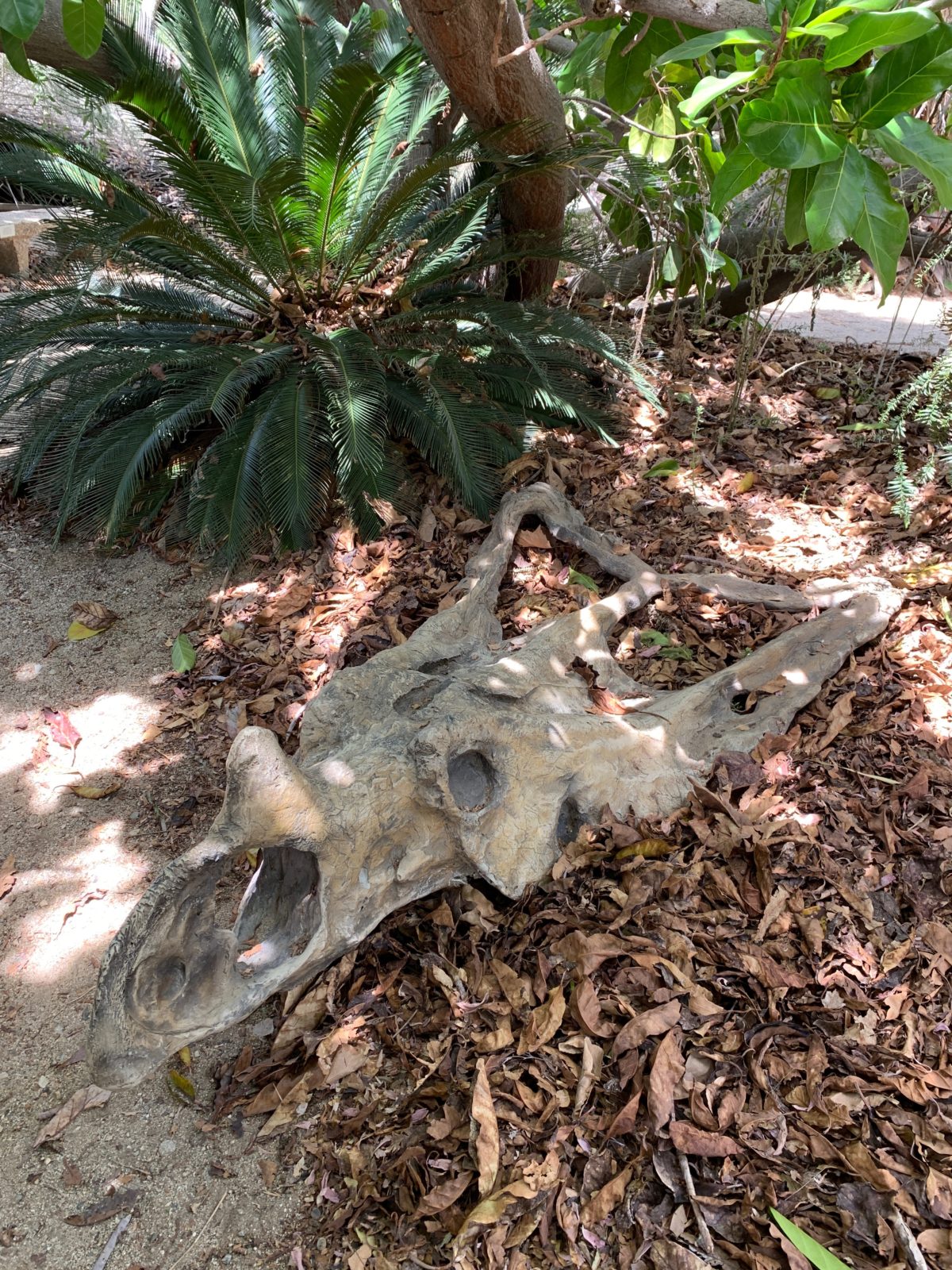
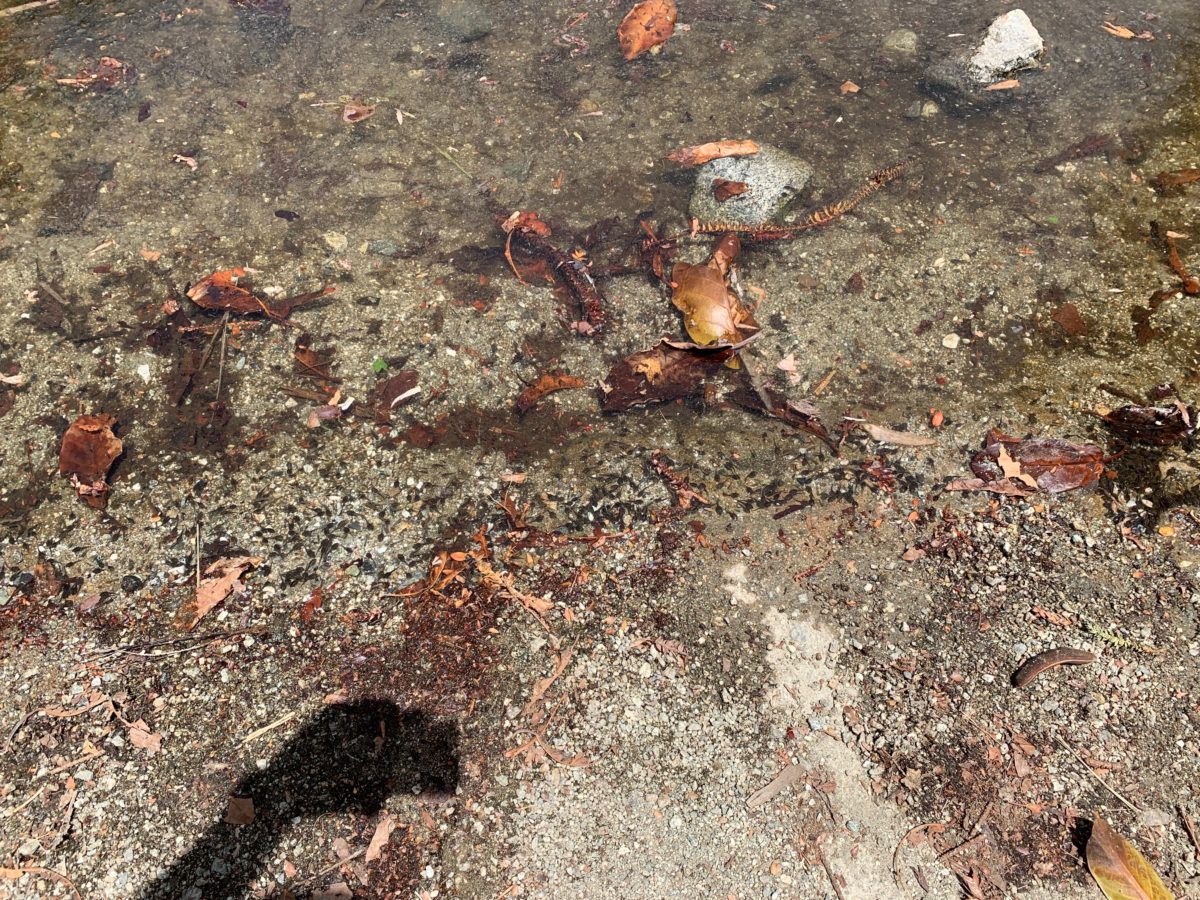
Tadpoles galore!
The Bobcat
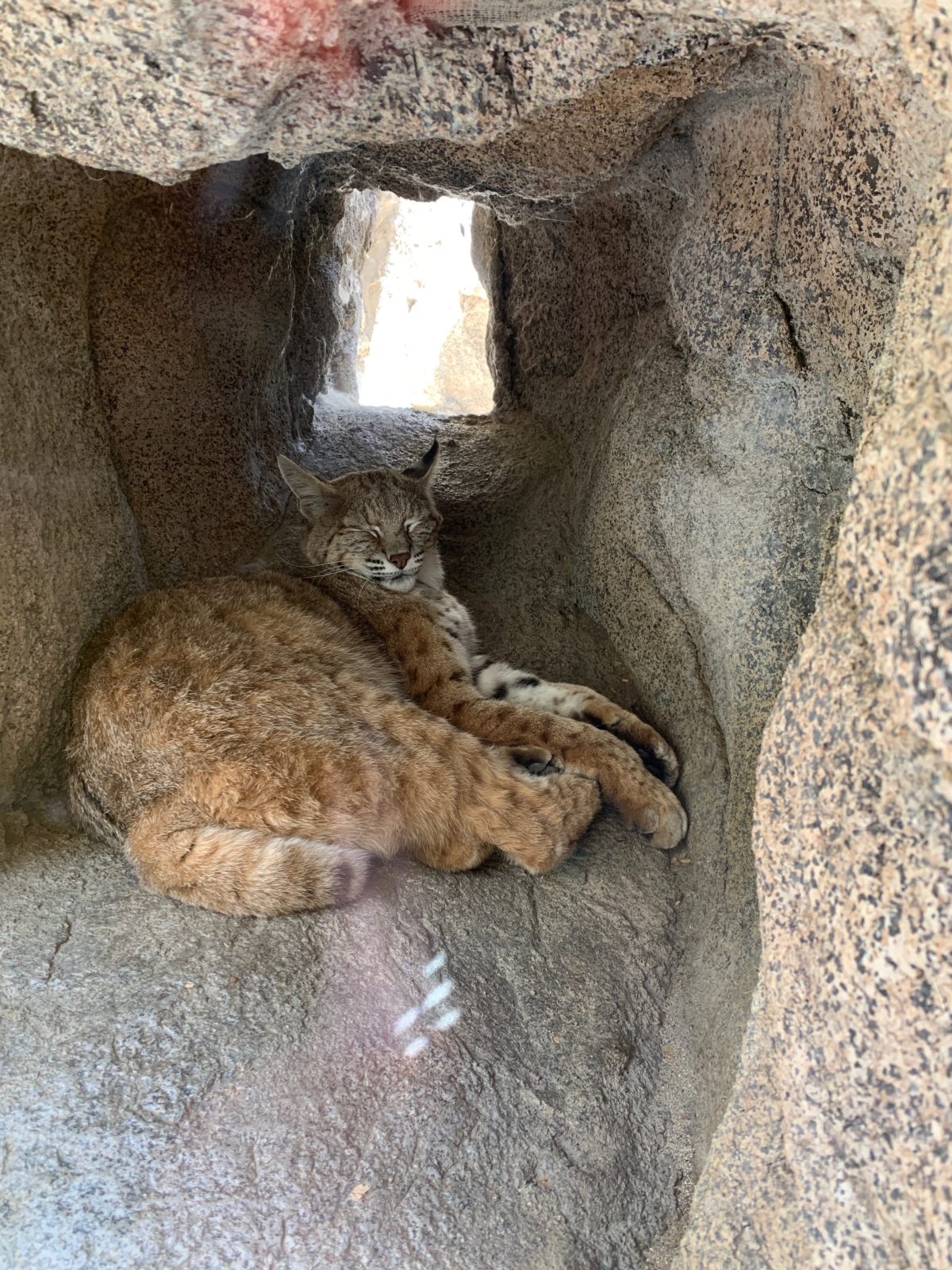
The Mexican Wolf
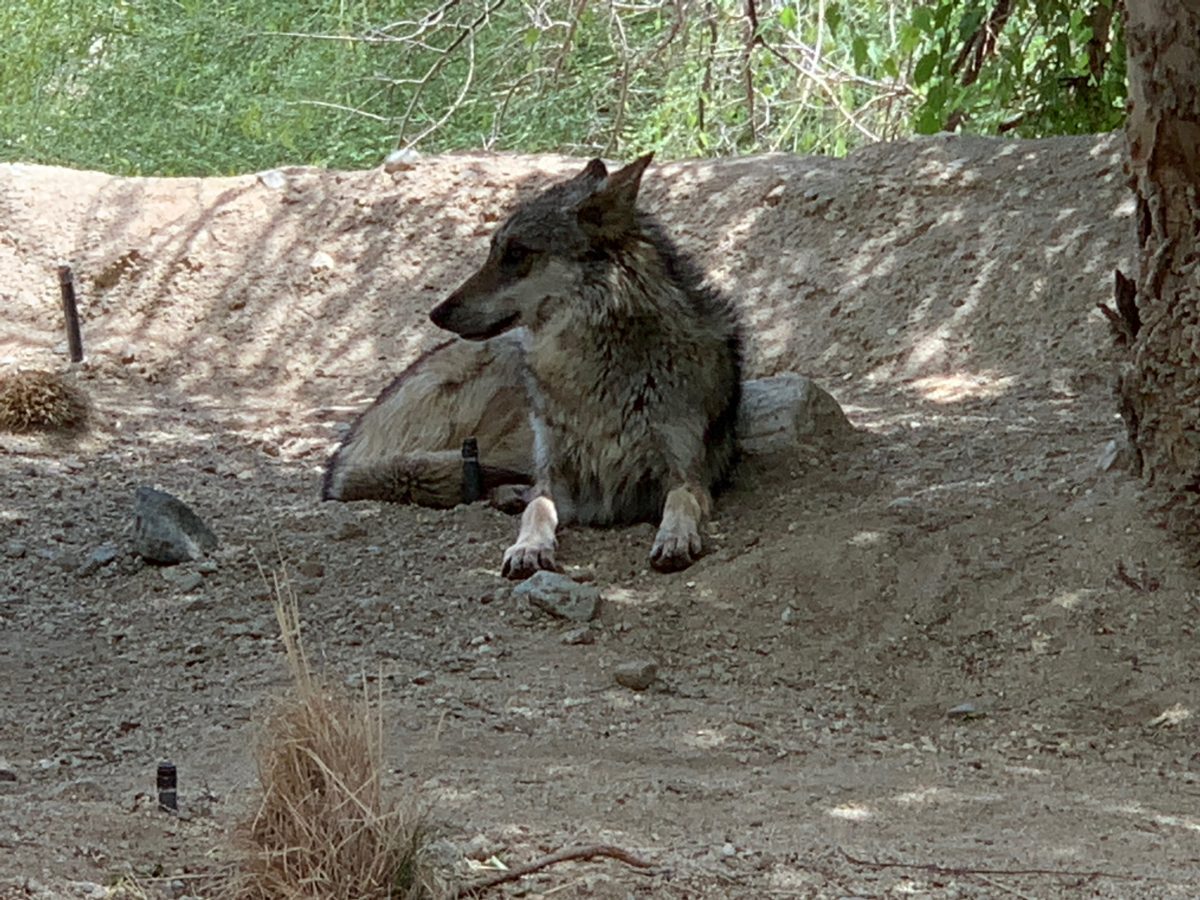
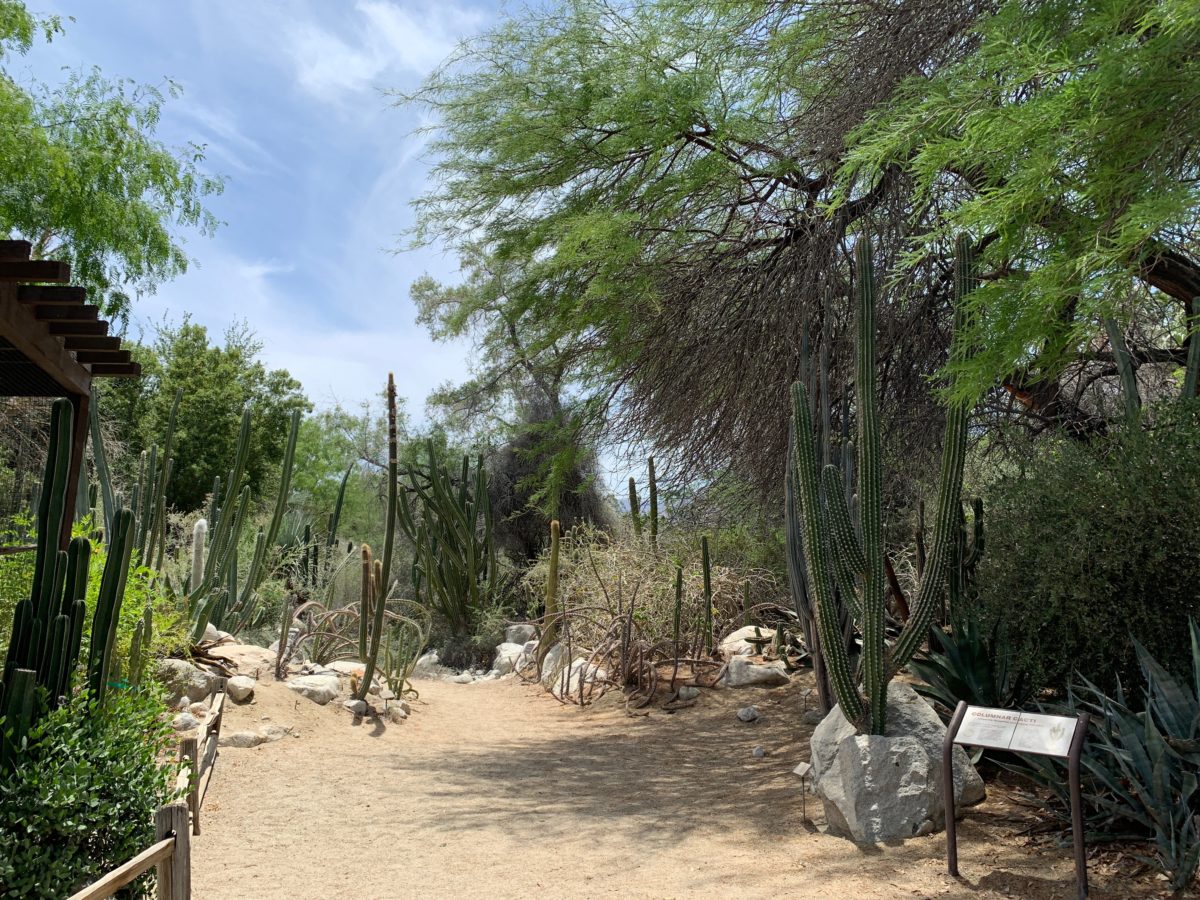
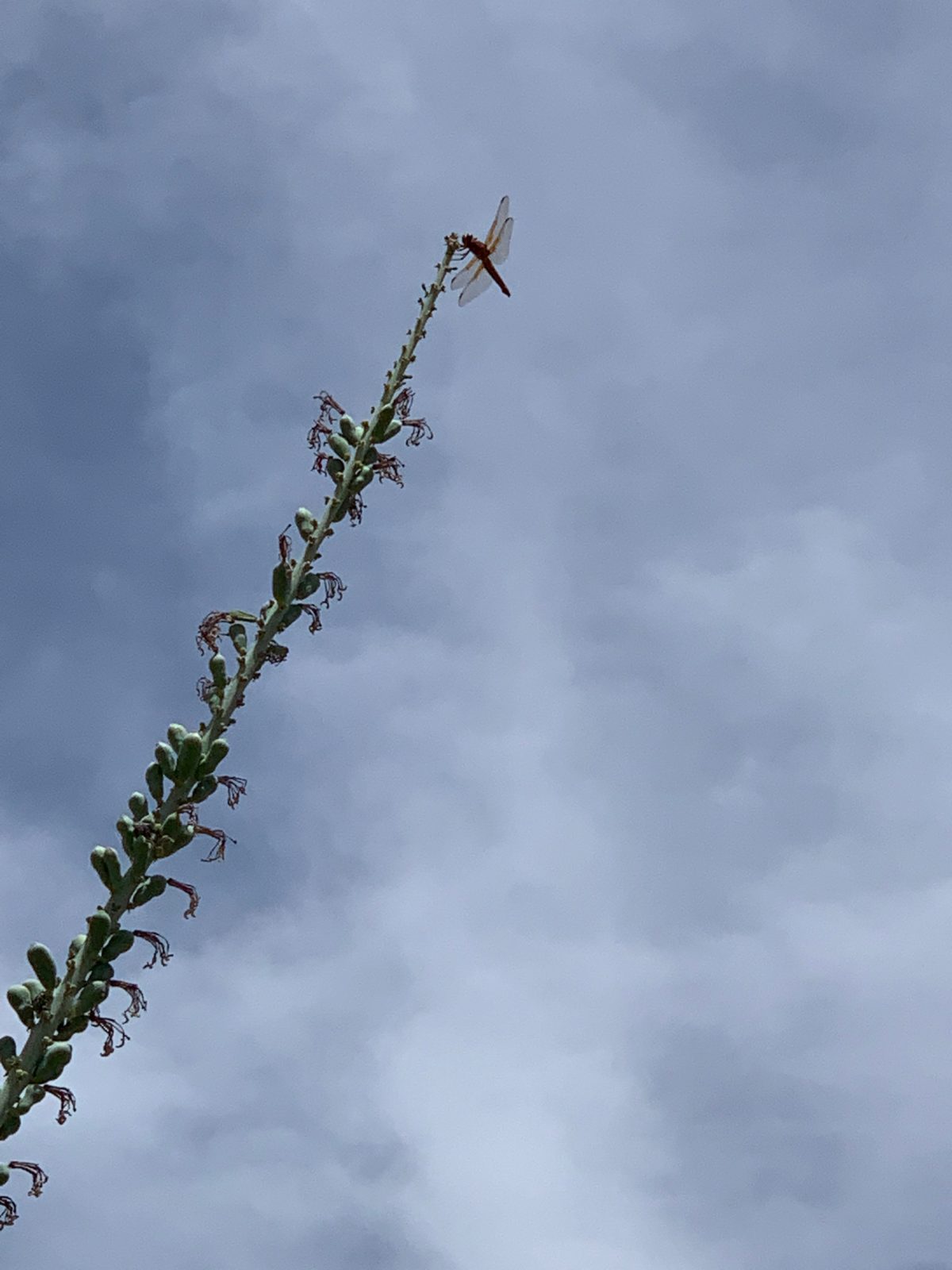
A monstrous dragonfly resting on a cactus bloom
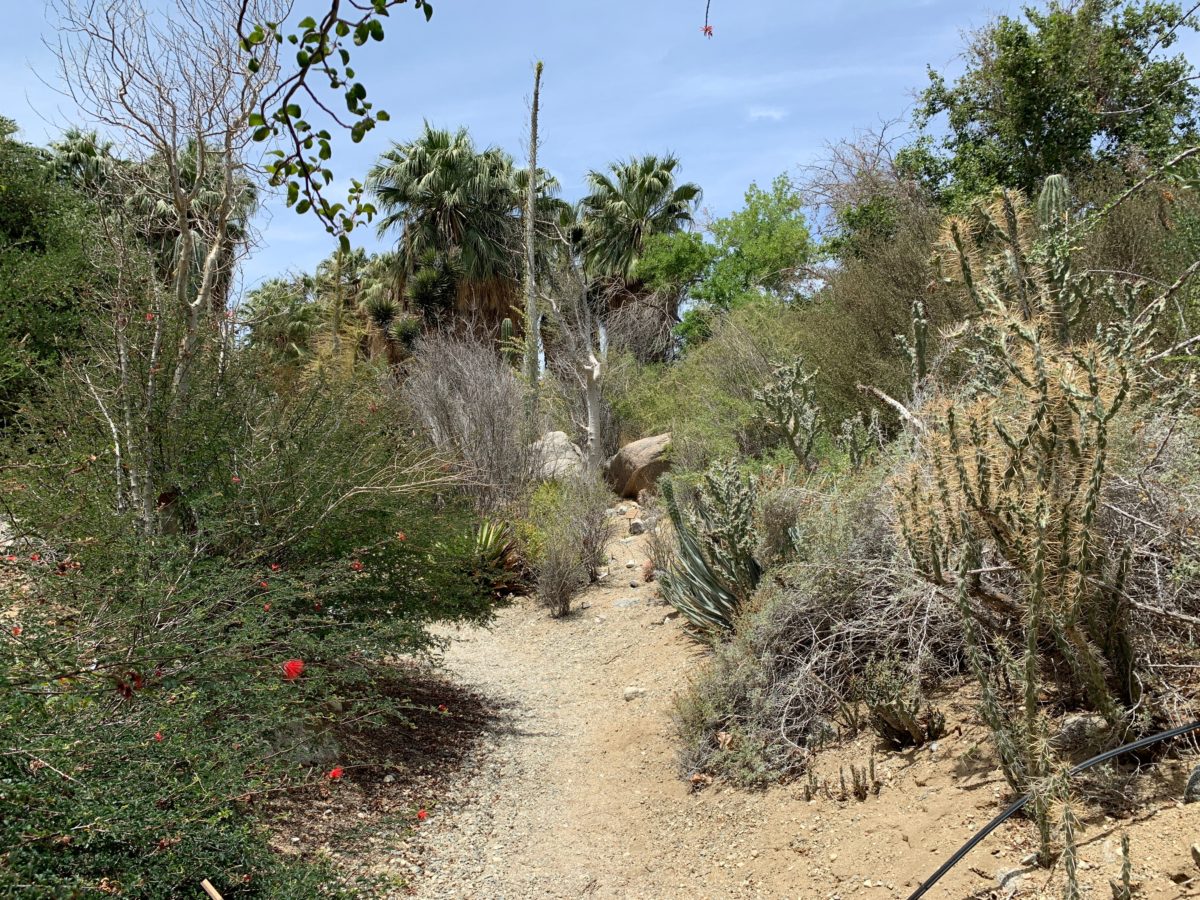
The Jaguar
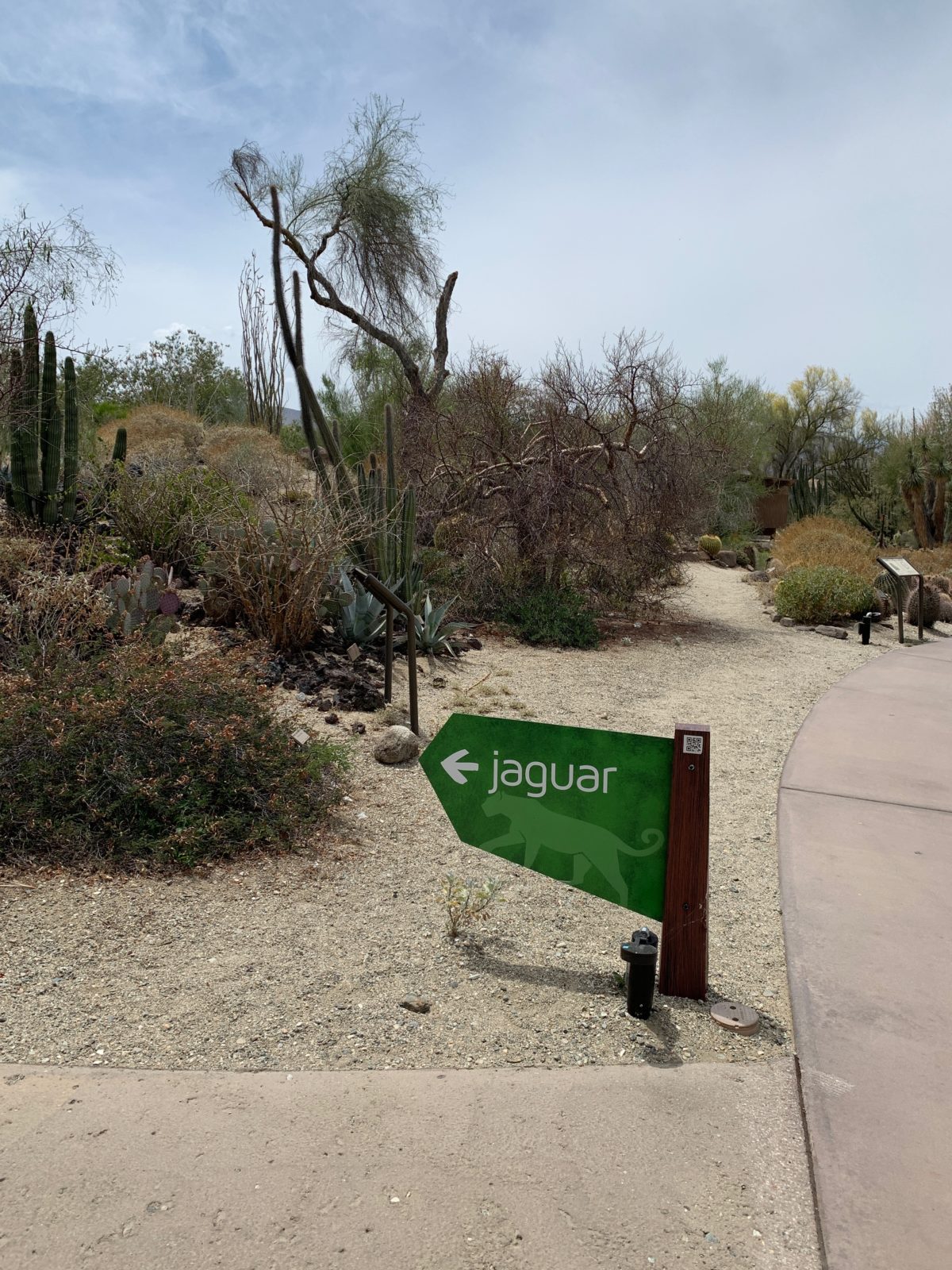
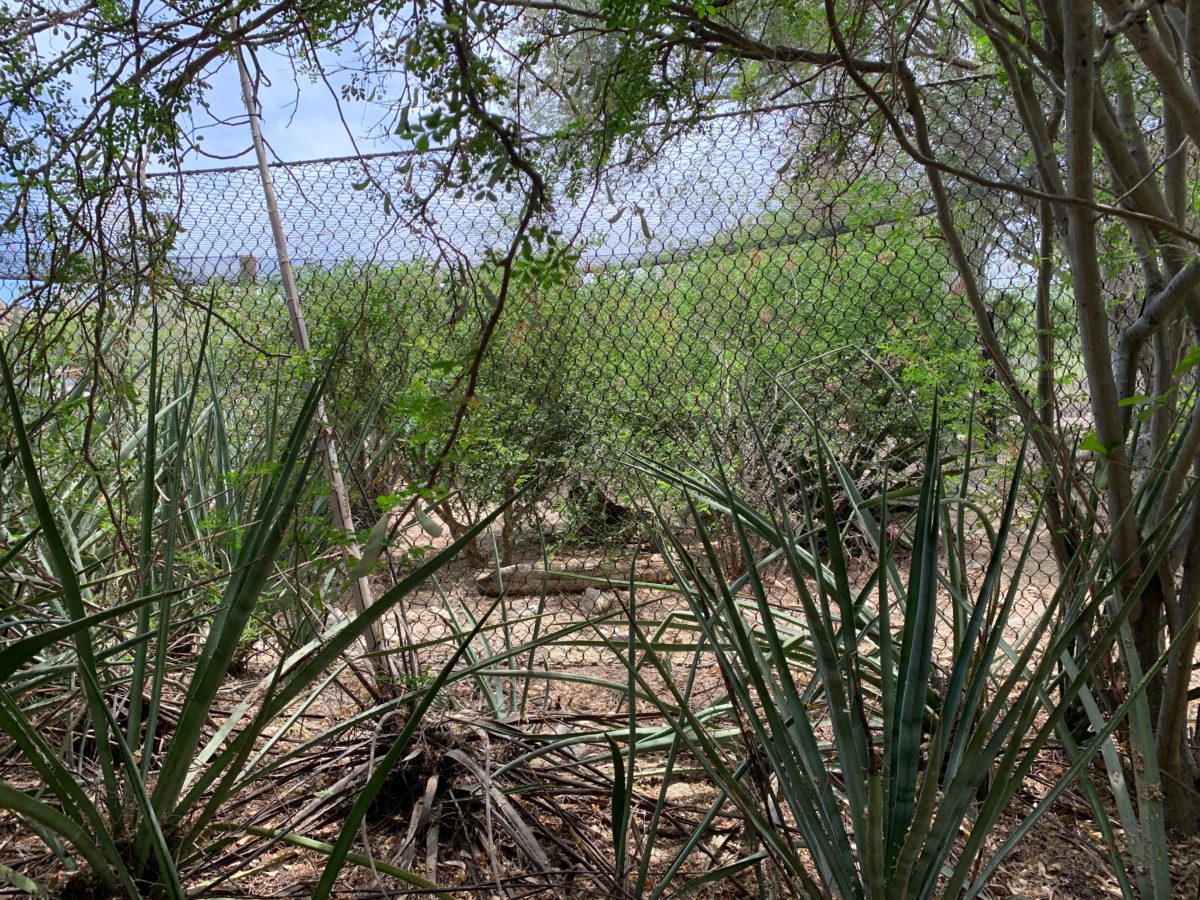
Do you see the Jag? He’s laying on the ground in the center of the photo
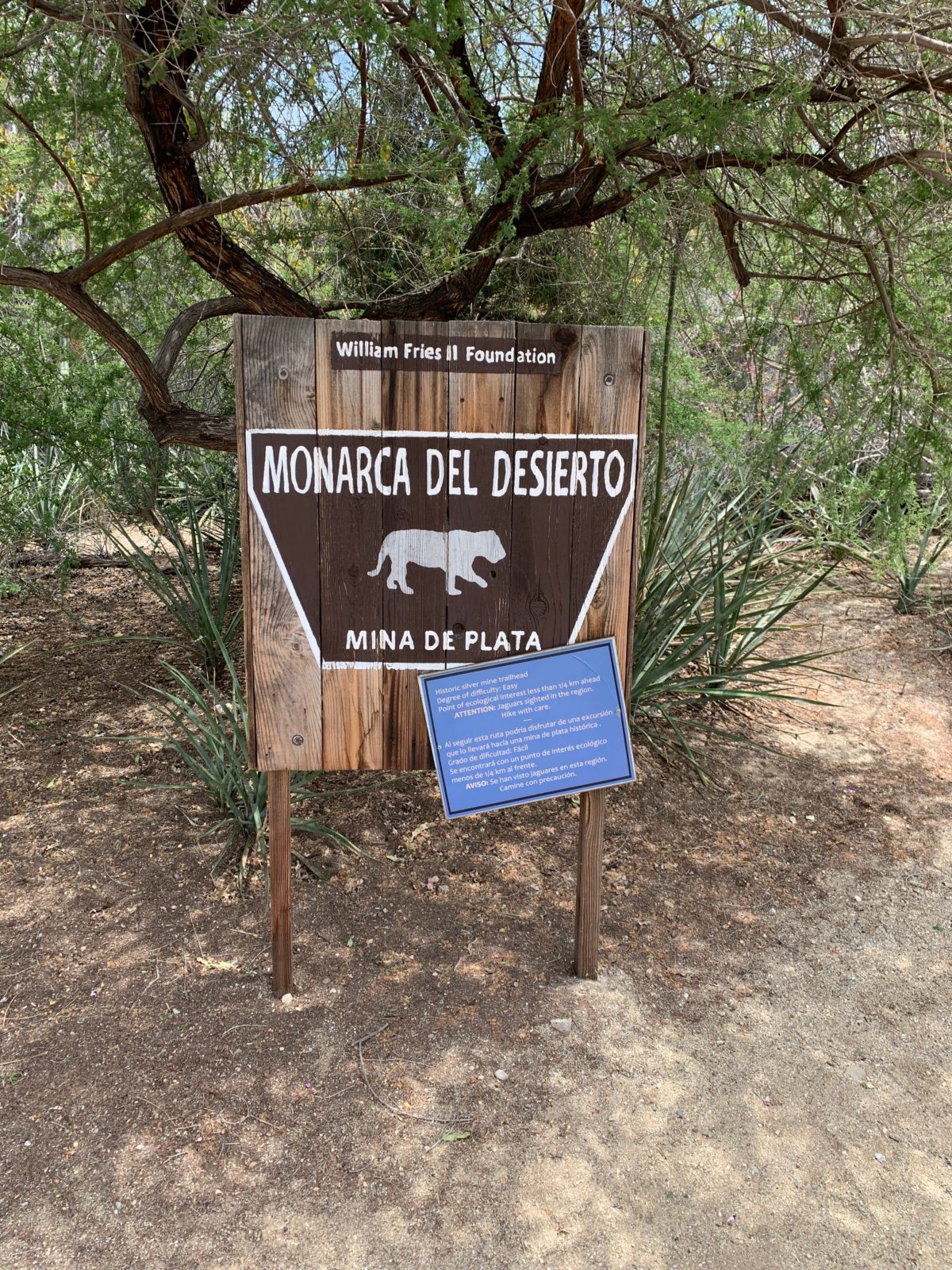
The Starry Safari Overnight Adventure Campground
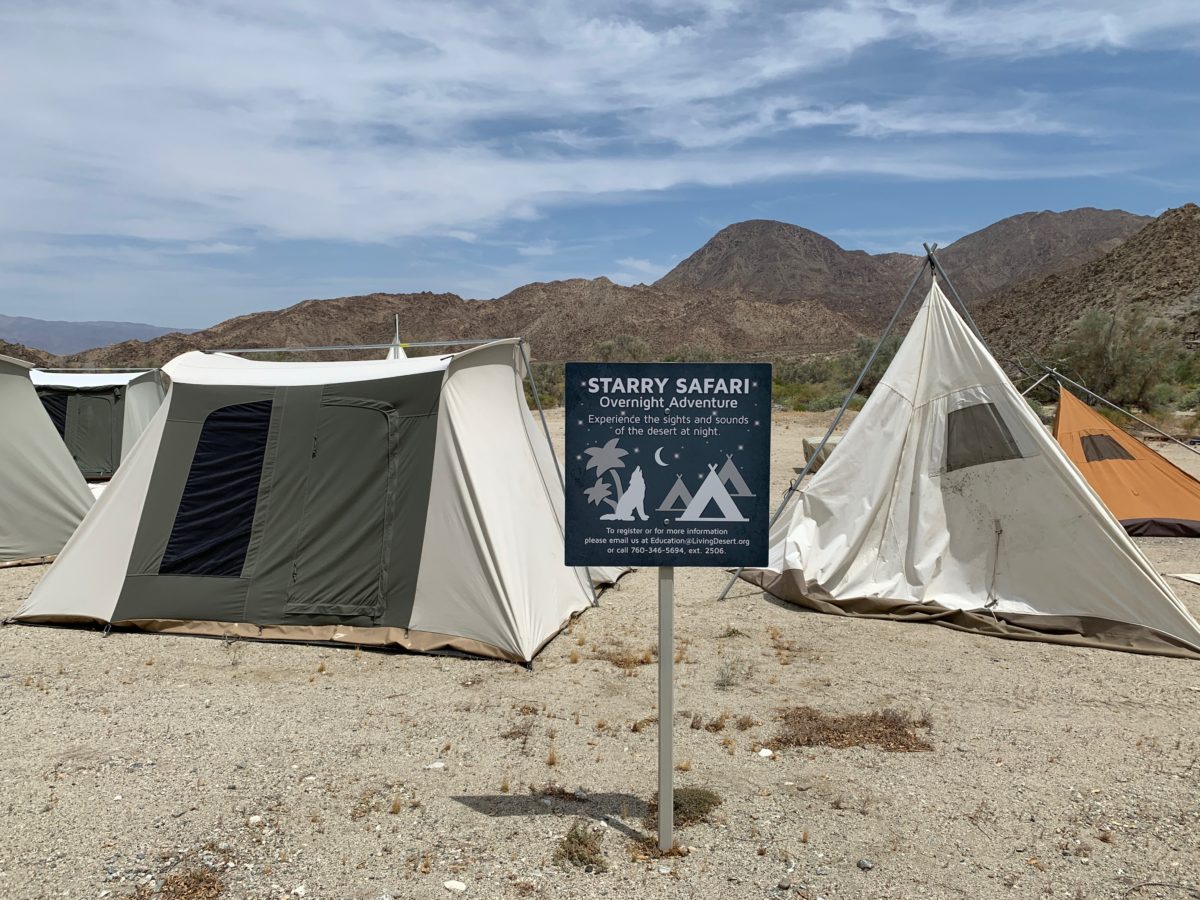
The Living Desert Trail System
In the center of the park (at its easternmost reaches) is gate leading to 3 hiking trails and an up-close view of the San Andreas Fault.
This section is free to hike [with a purchased park admission or membership], and leads to a rugged and exposed desert terrain with great opportunities for spotting native wildlife and the famed San Andreas Fault.
Due to the hot desert conditions, these trails are only open to hikers from October 1 through May 31 annually.
Click here for my post on Hiking The Adventure Loop Trail At The Living Desert Zoo|Garden
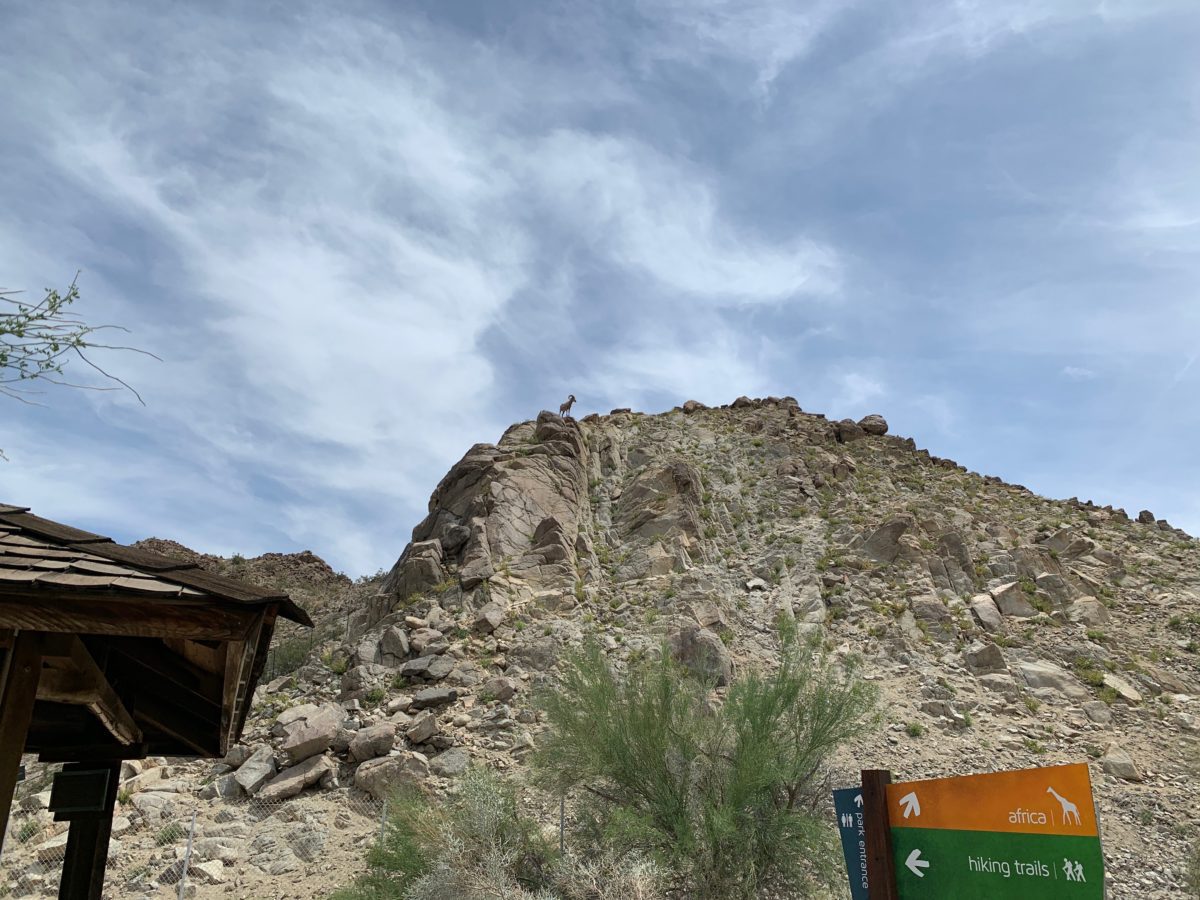
A Desert Bighorn Sheep visible from the entrance to the hiking trails
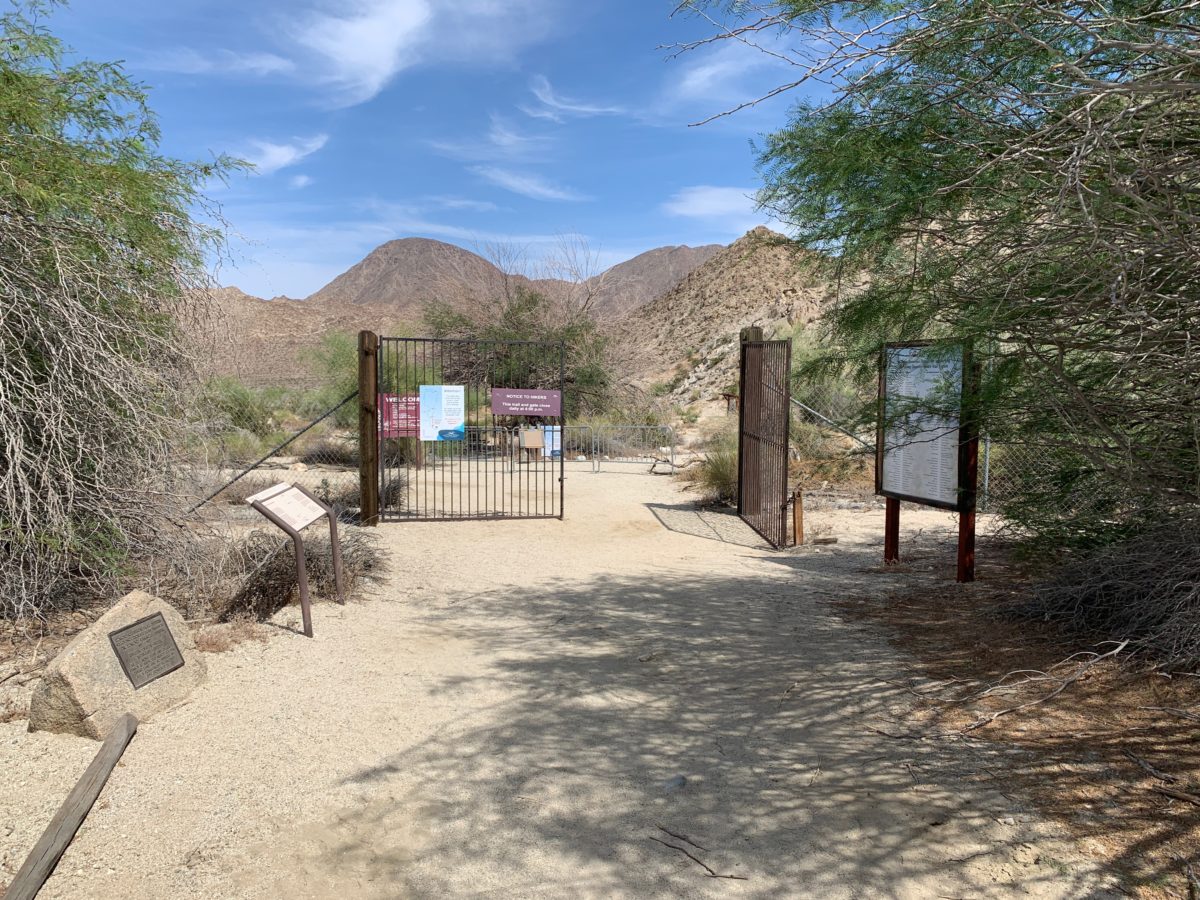
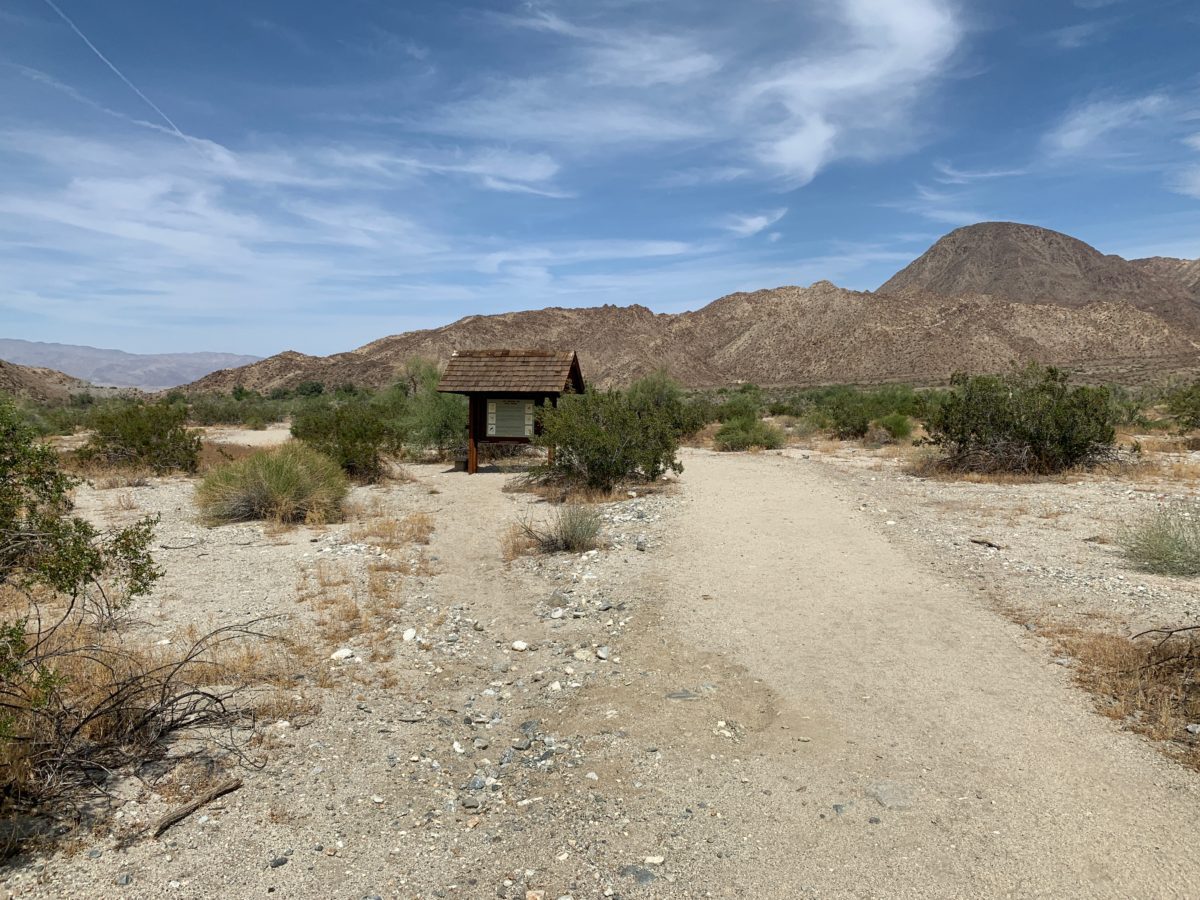
Into the great wide open
Desert Bighorn Sheep
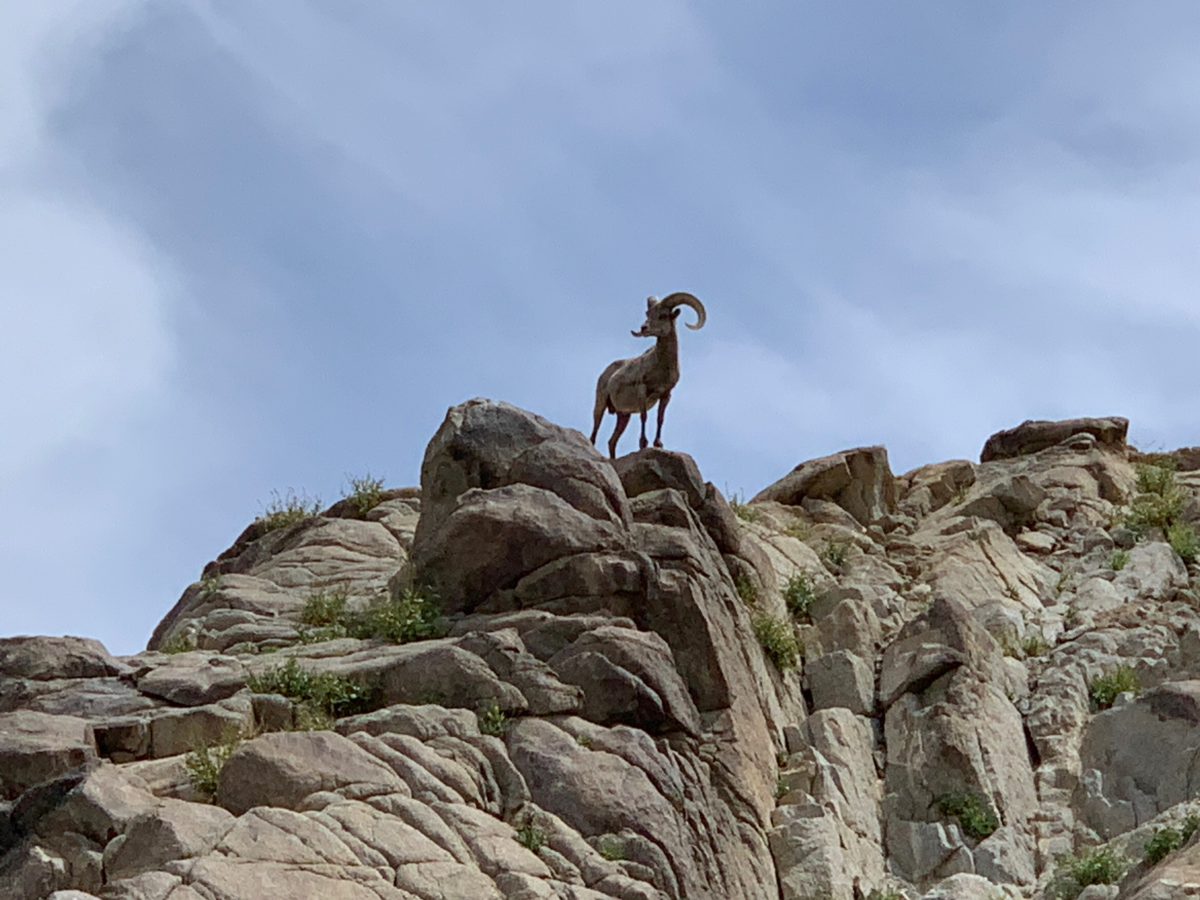
King of the hill
The Border Of North America And Africa
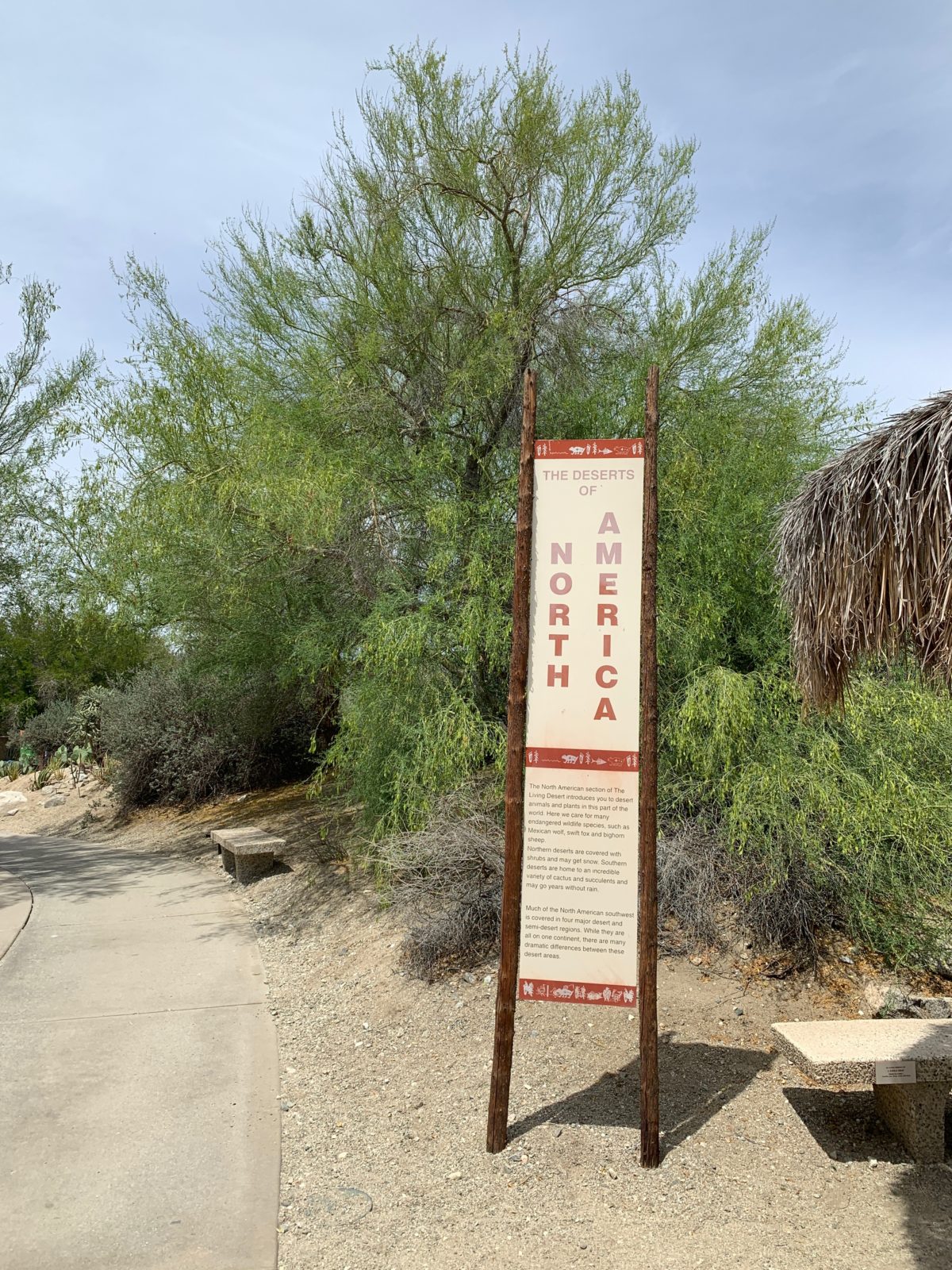
The Desert Bighorn Sheep exhibit marks the border
Welcome To Africa
Crossing into Africa, we followed the map’s suggested clockwise flow, past the Oryx, Fennec Fox and Meerkat, over to the Cheetah exhibit.
From there, we walked the loop around the Village WaTuTu, where we had lunch and some ice cream (and a beer).
The last stretch of trail around Savannah’s Landing was easily the most scenic of the park.
The Living Desert had really done a great job on their re-creation of an African Savannah. It was quite beautiful, and spoke volumes to just how well Palm Springs lends itself to such a dreamy African landscape.
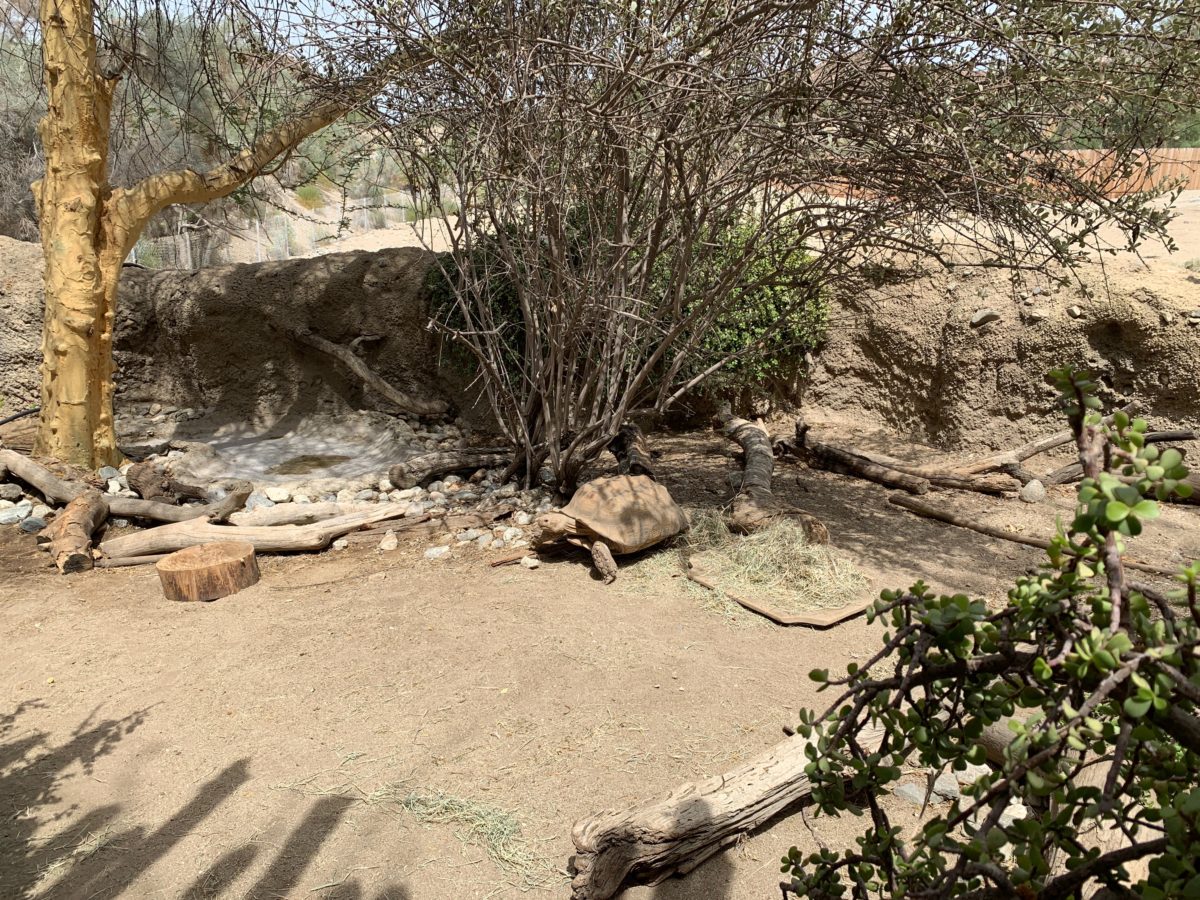
The Cheetahs
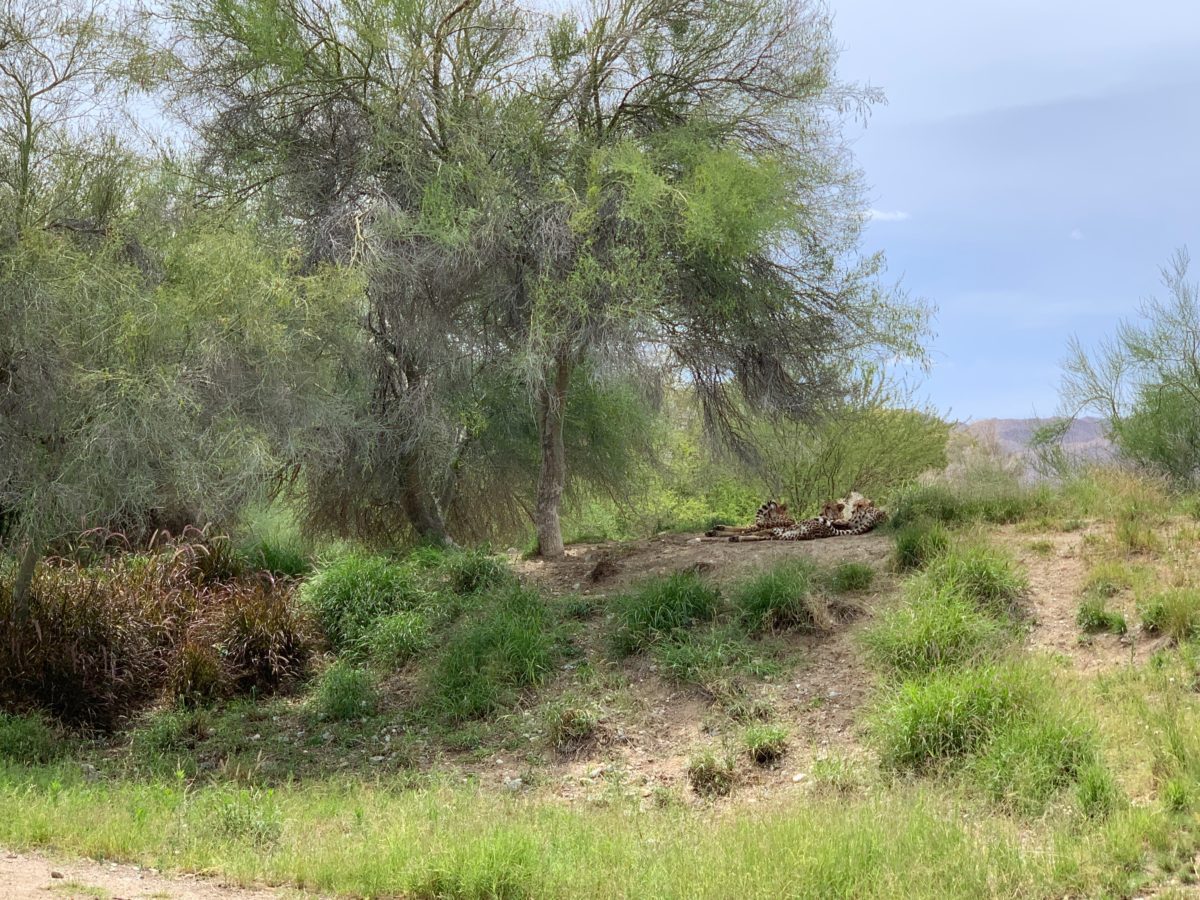
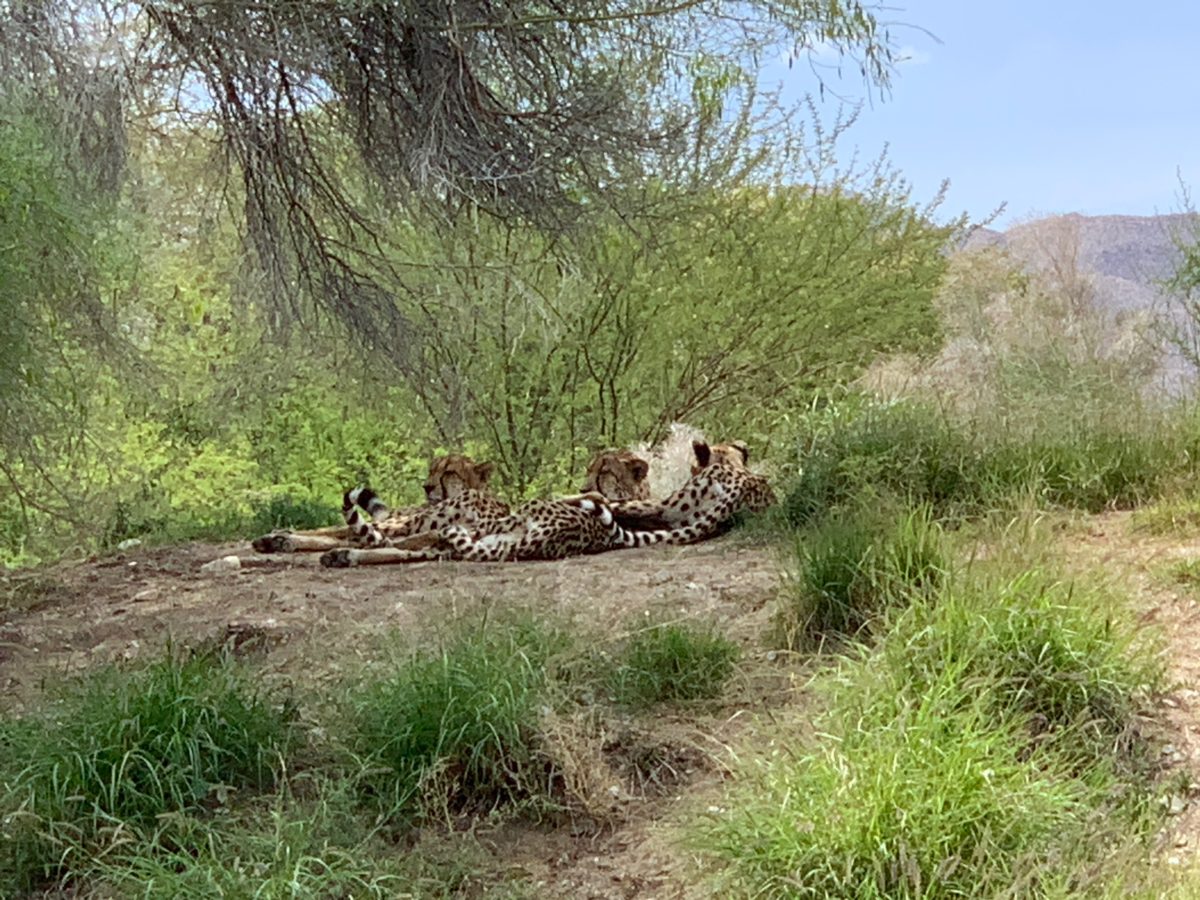
Three Cheetahs
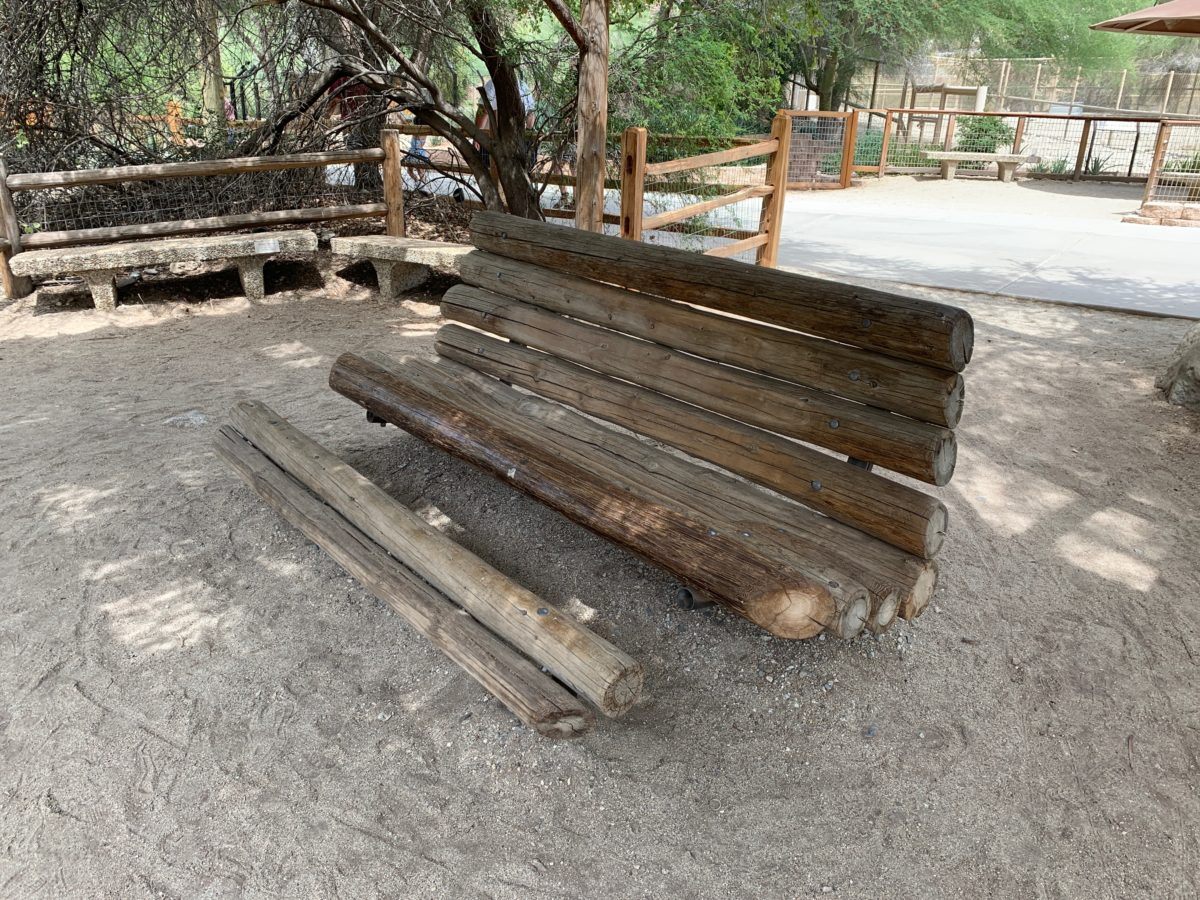
A comfortable (and well-shaded) bench at the cheetah exhibit
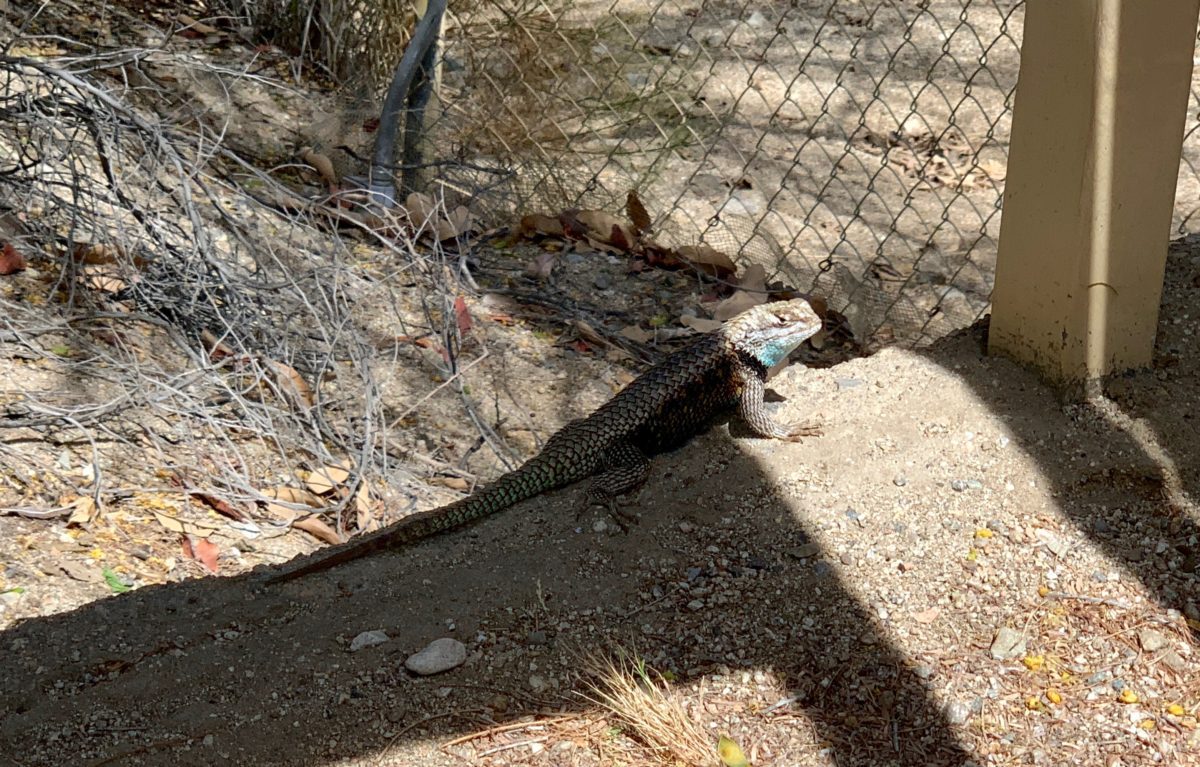
A huge [California native] Desert Spiny Lizard (with his tell-tale blue neck) sunning by the African Wild Dog exhibit
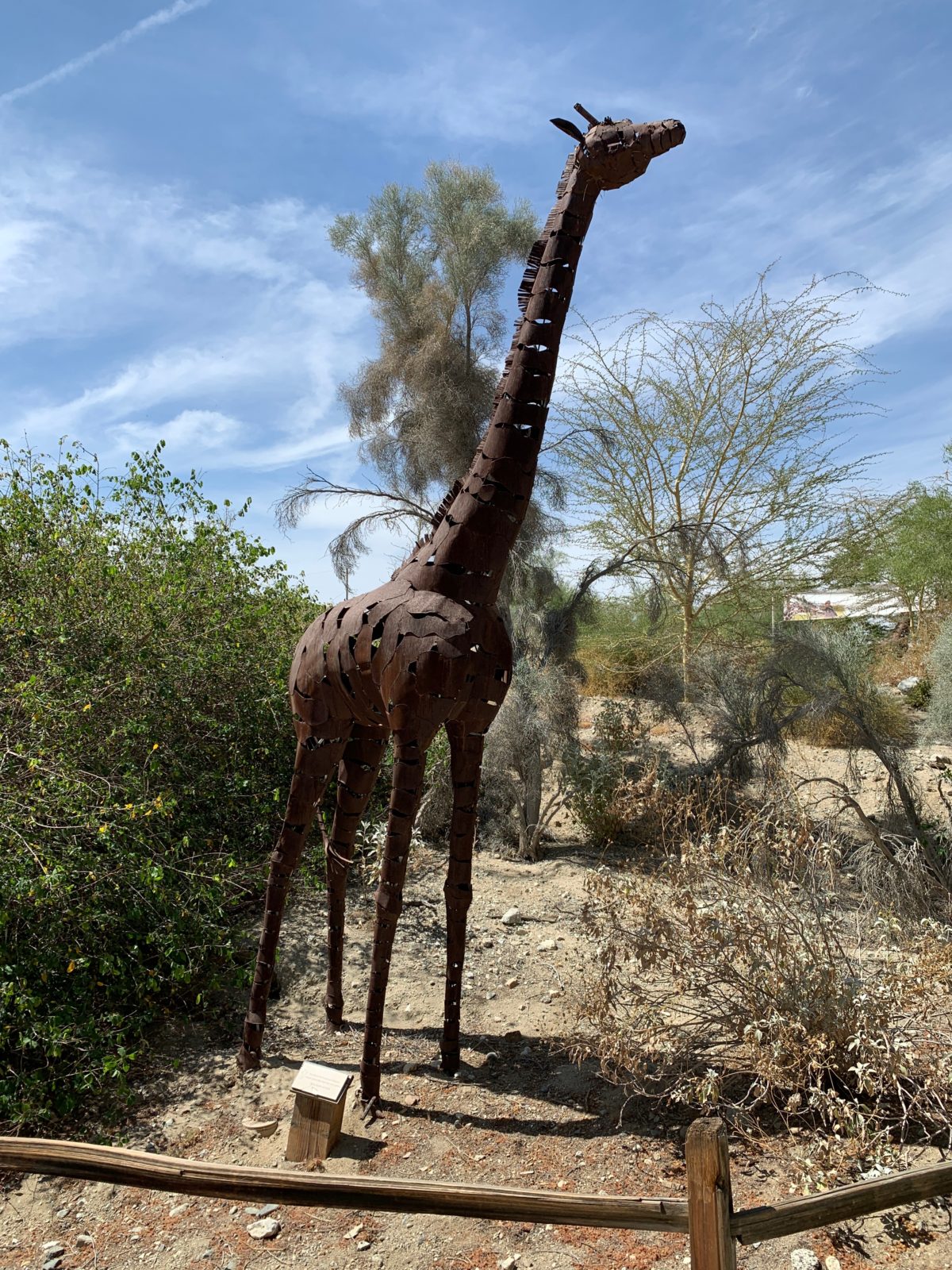
Savannah’s Landing
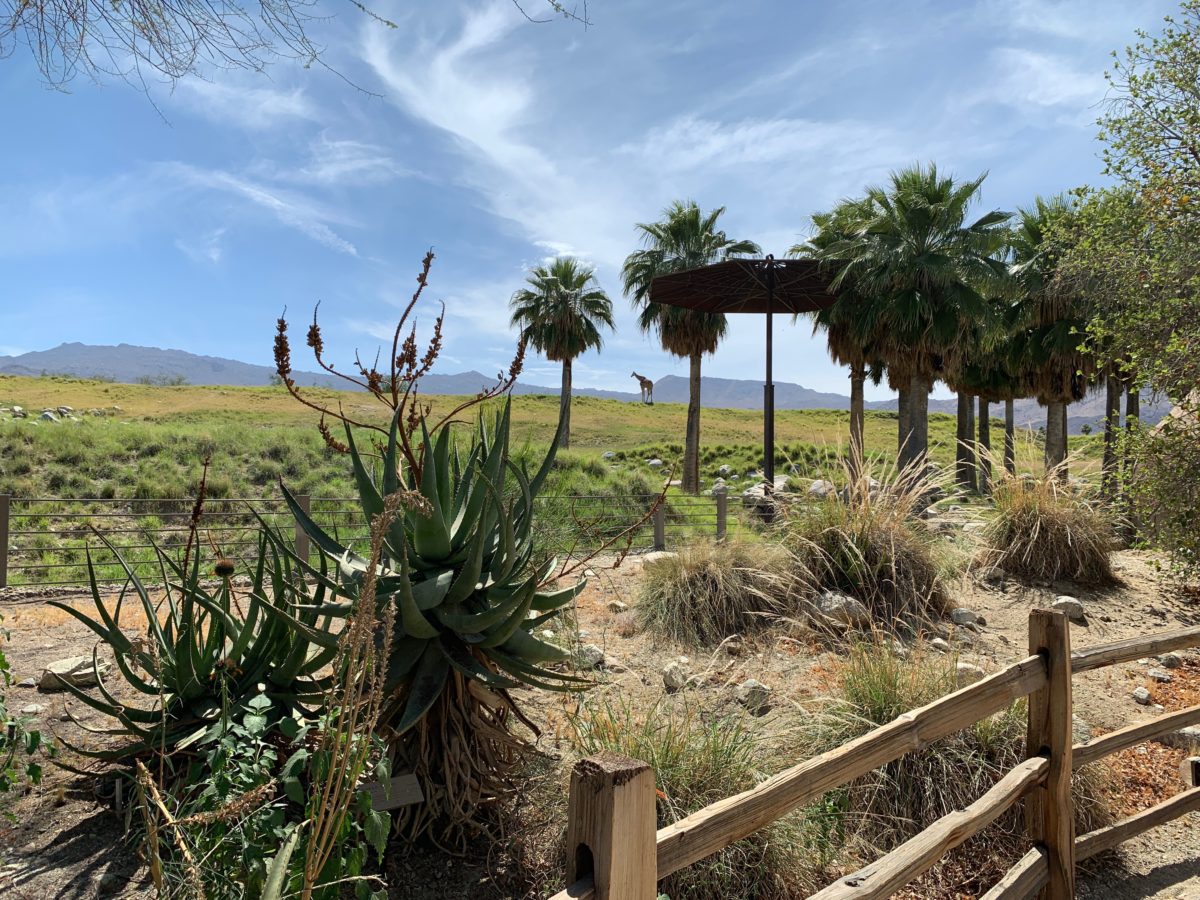
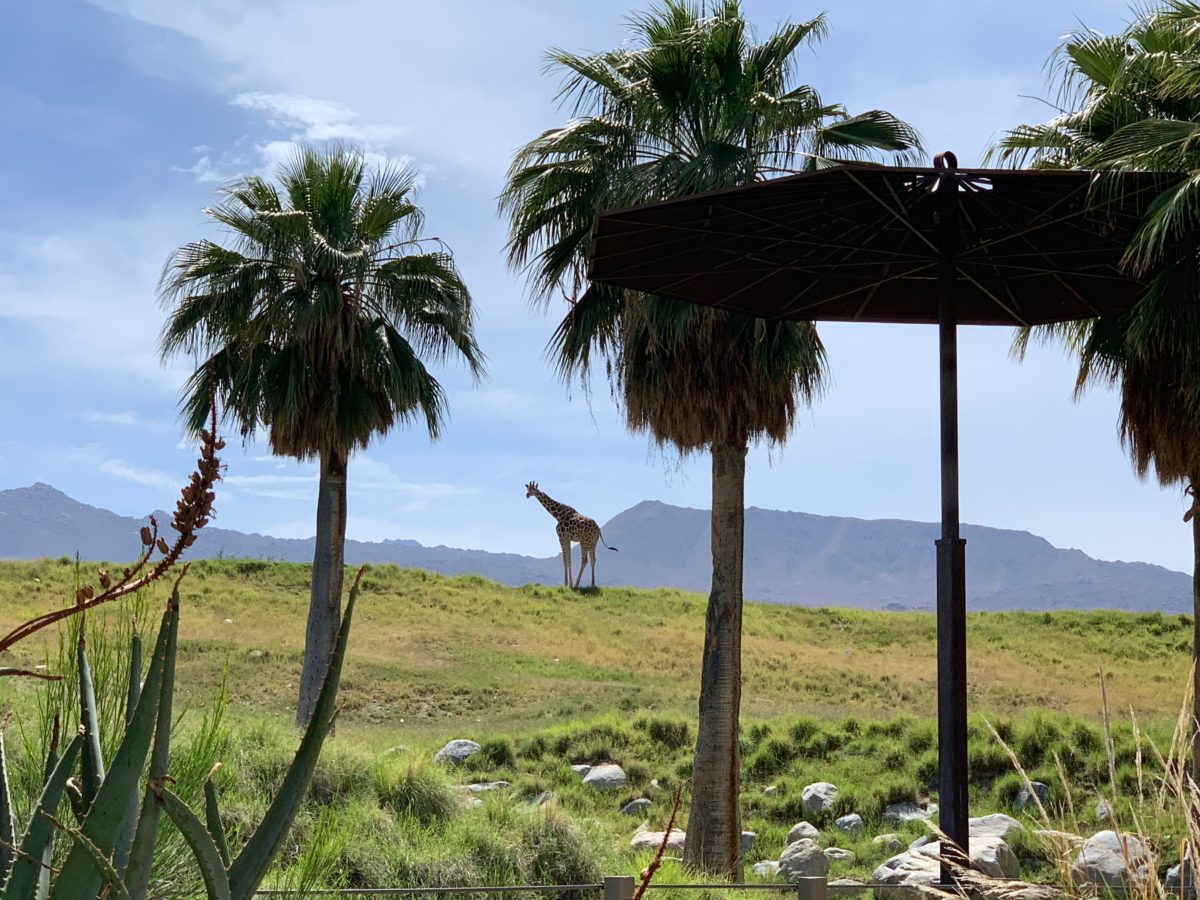
The Giraffe (Close-up)
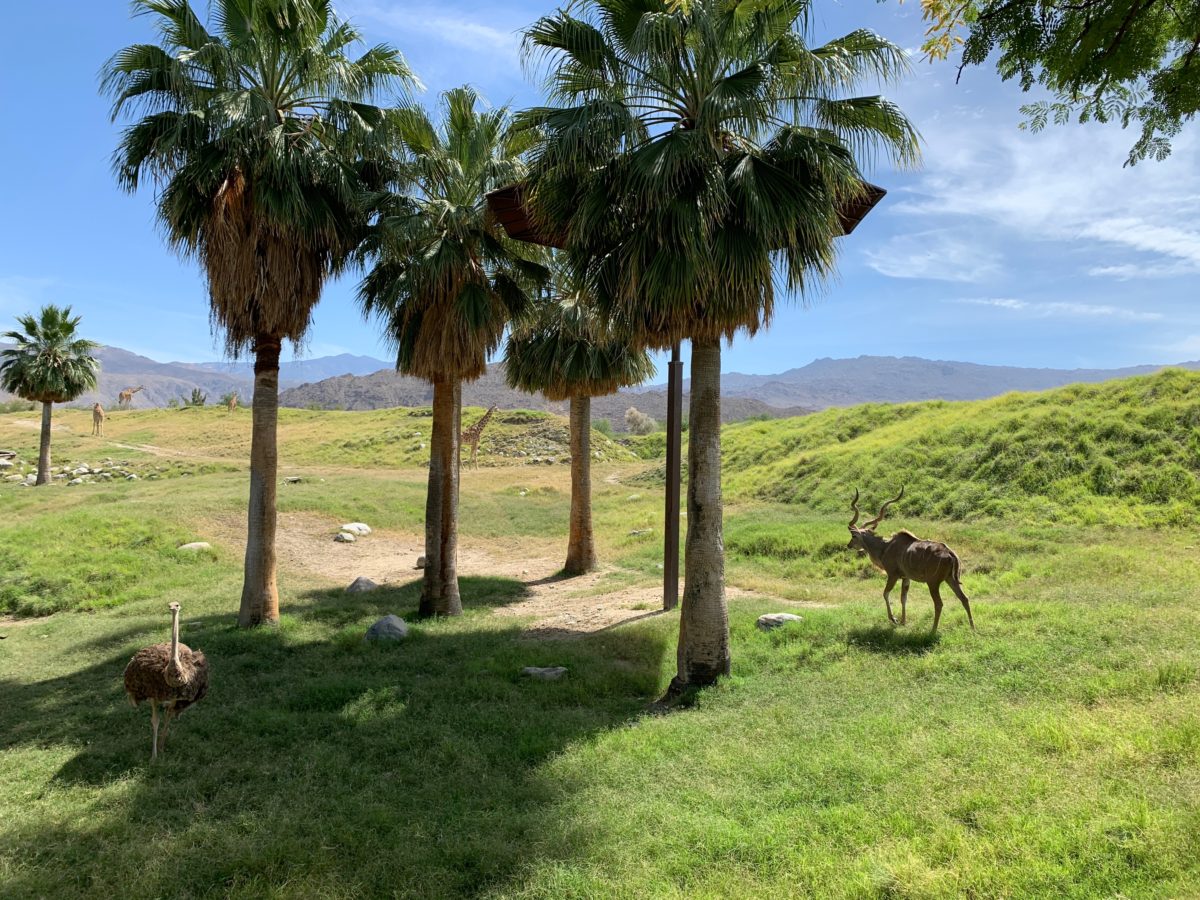
Ostrich, Giraffes, and Kudu on the African Savannah
Final Thoughts: Visiting The Living Desert Zoo|Gardens (Palm Springs, CA)
I’m very pleased to report the Living Desert Zoo|Gardens lived up to – and completely surpassed – my childhood memory of The Living Desert Museum of years’ past.
We spent a wonderful (and full) day exploring the park. There were amazing things to see around every corner.
I really enjoyed the “side trails” that made me feel like I was wandering a lush desert landscape, the rare animal exhibits (like the Mexican Wolf and the Peninsular Pronghorn), and the unexpected hiking trails.
I felt the exhibits were well done and the animals seemed happy and healthy with plenty of space to roam.
The “grand finale” was easily the African Savannah. The picture above says it all.
We had a great time visiting The Living Desert, and I can easily say this is a true “must see” destination in Palm Springs.
Cheers!

